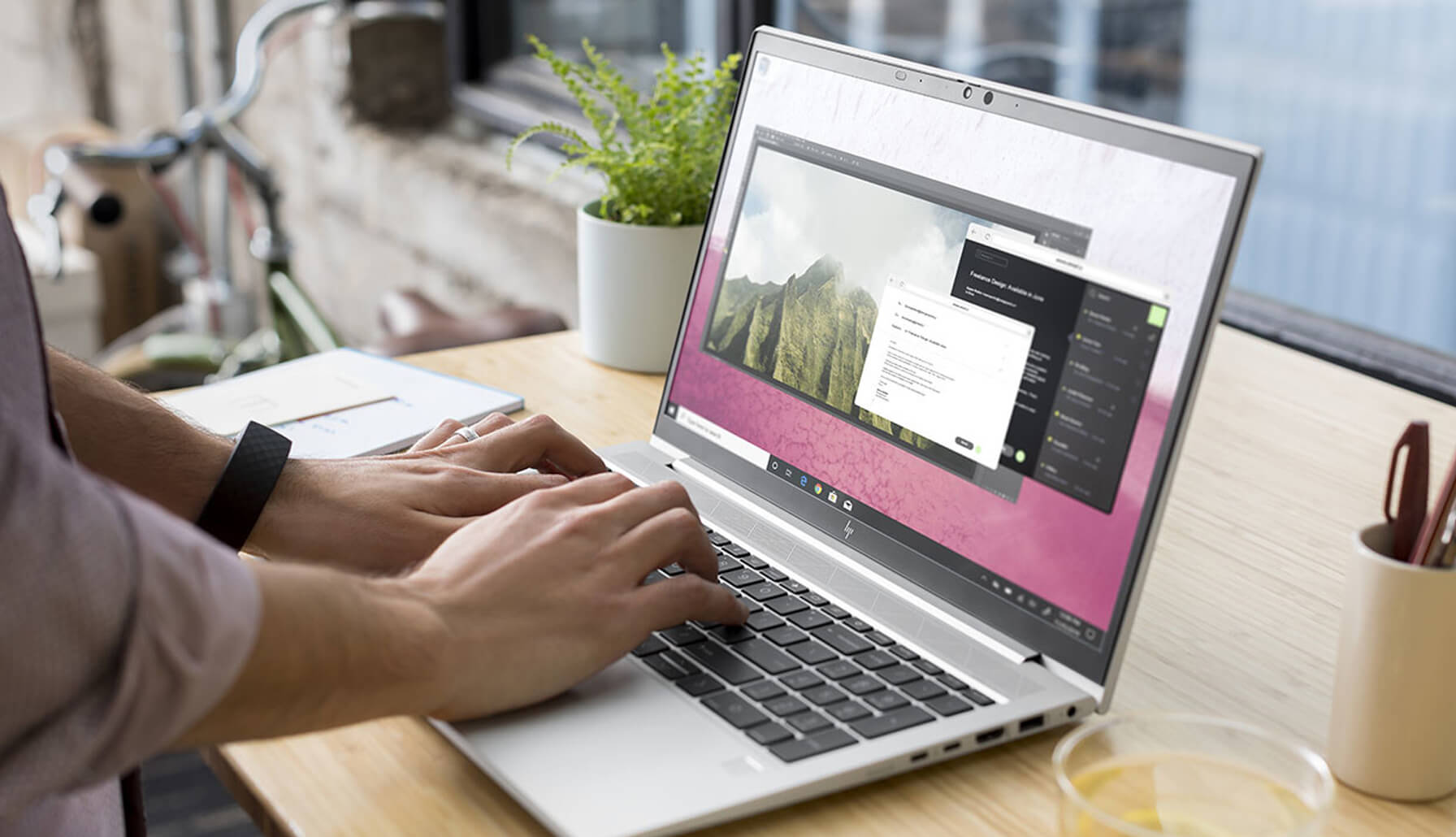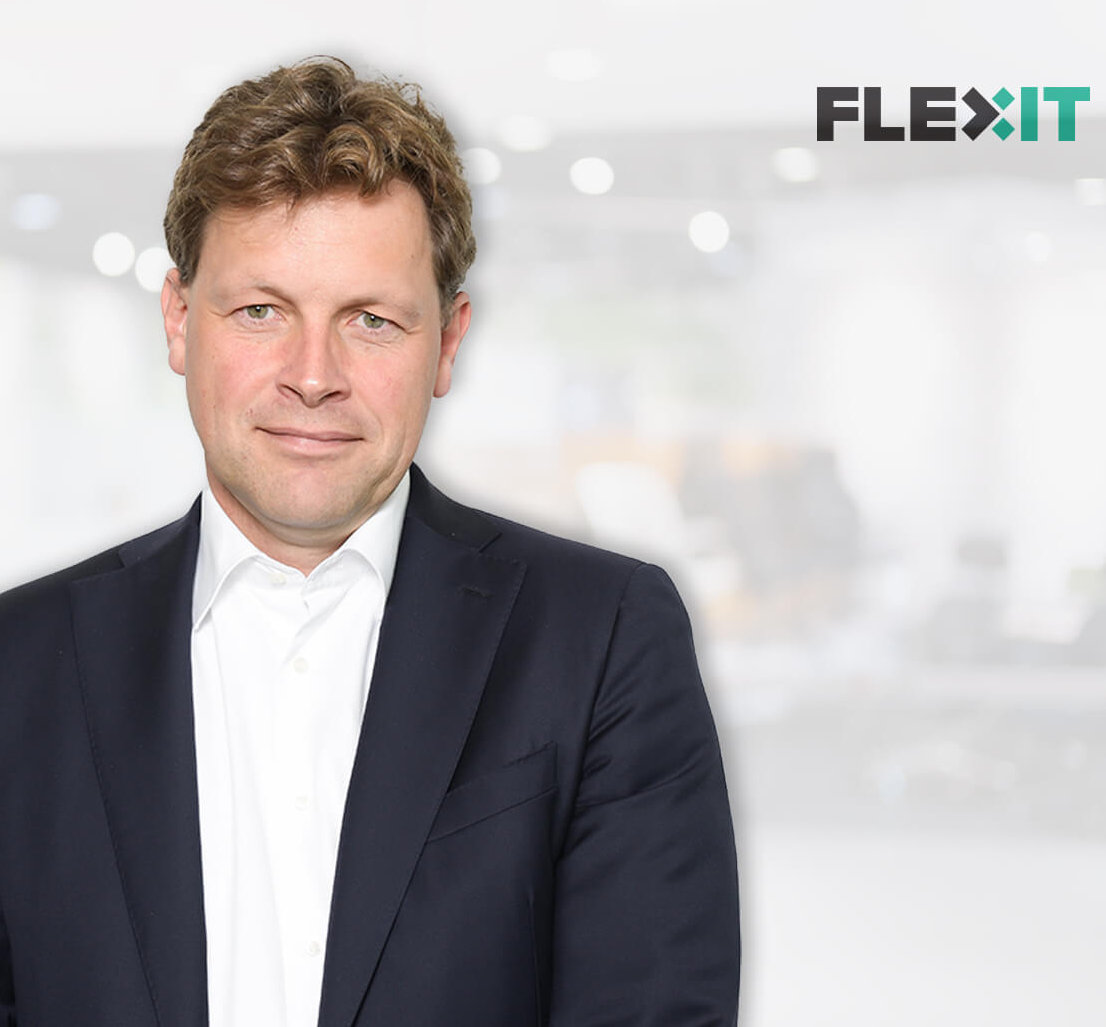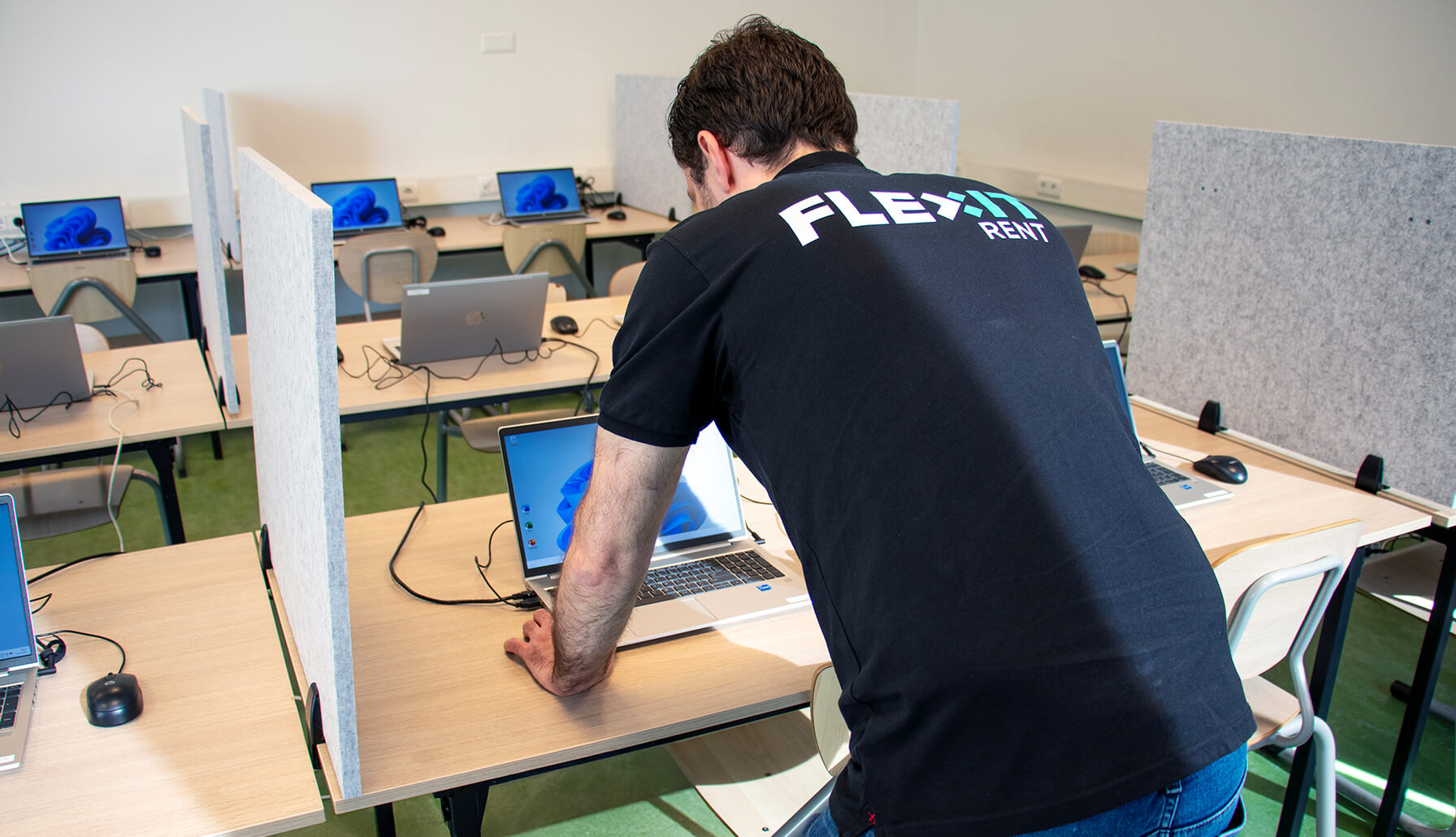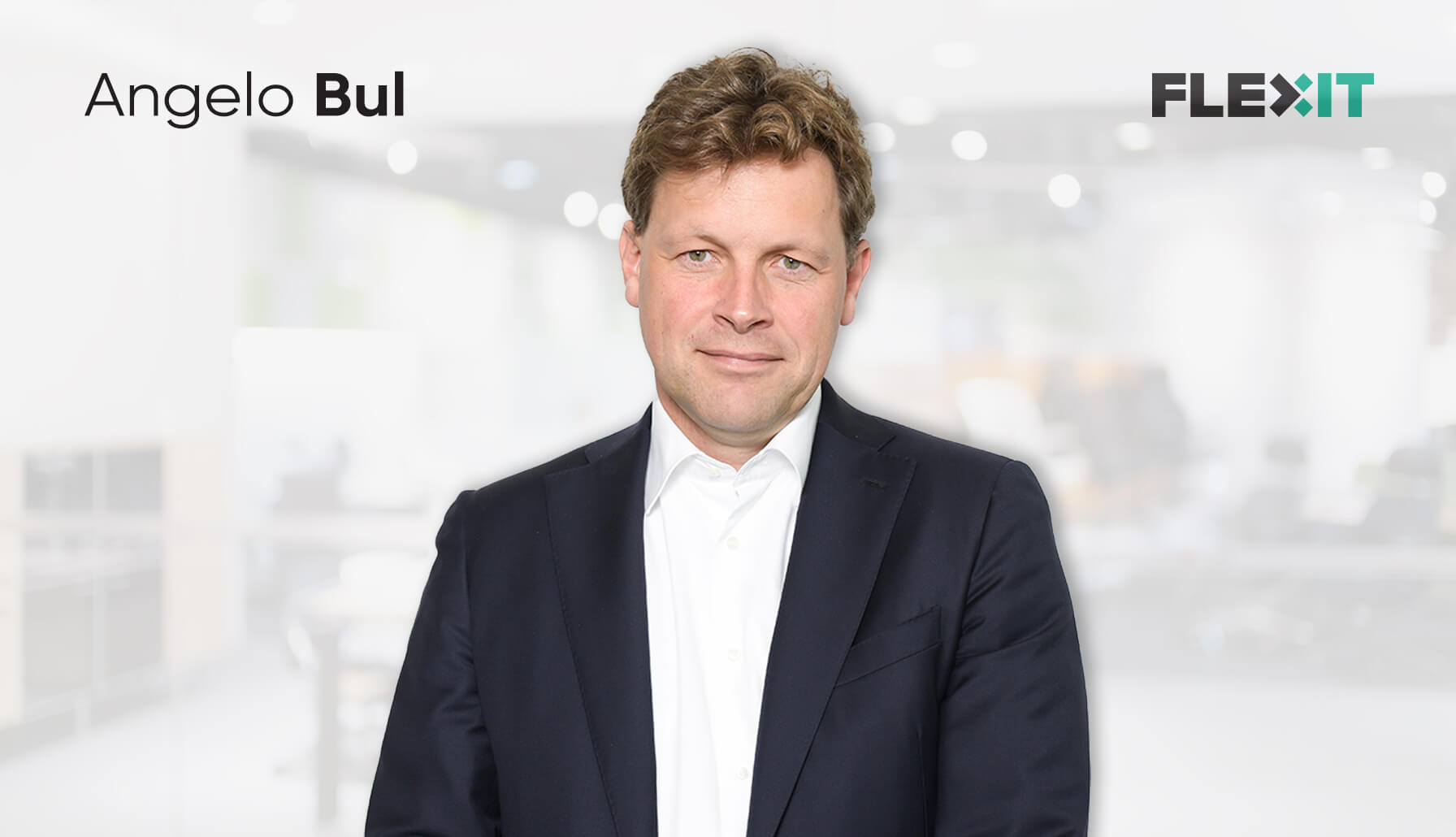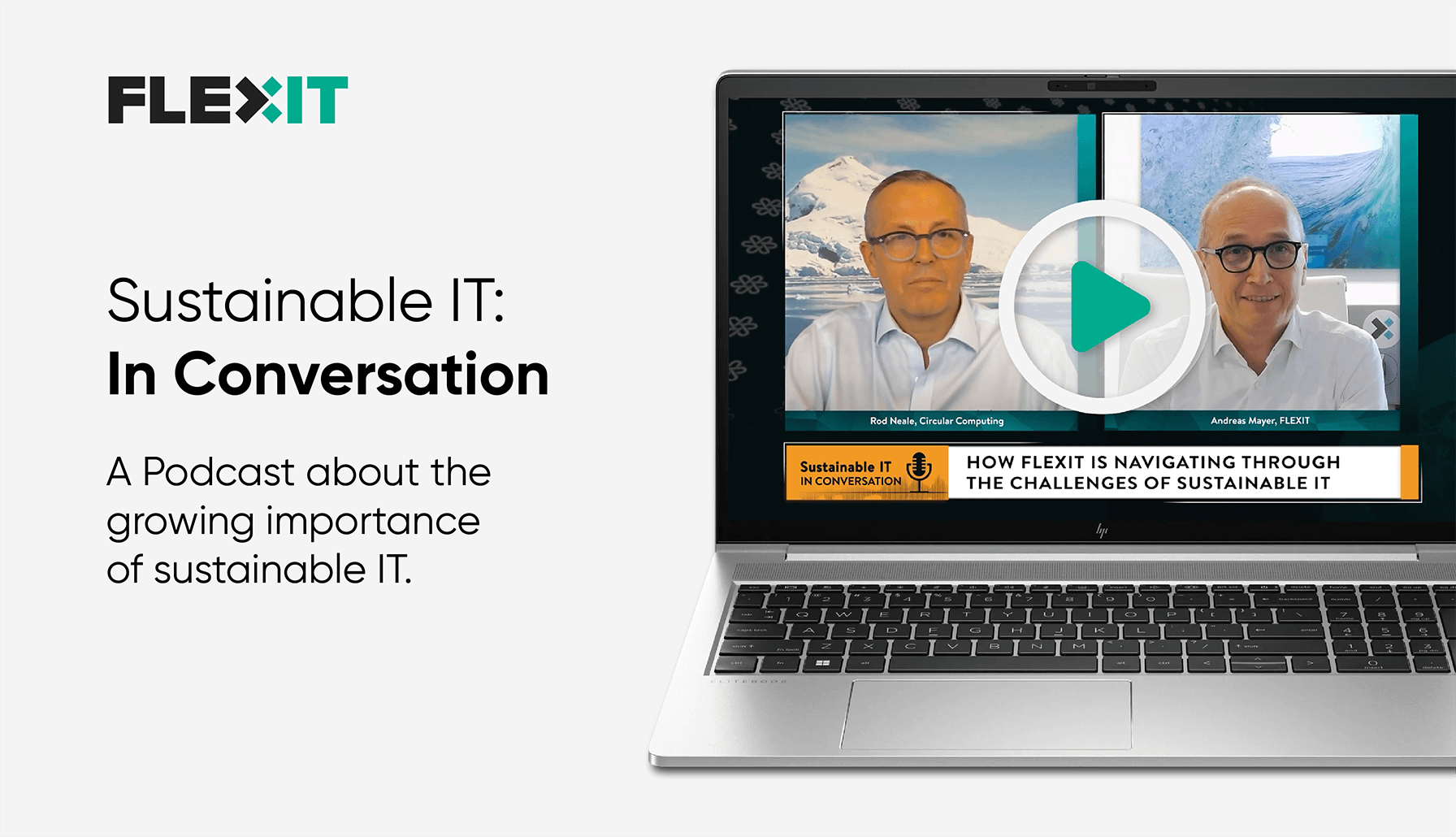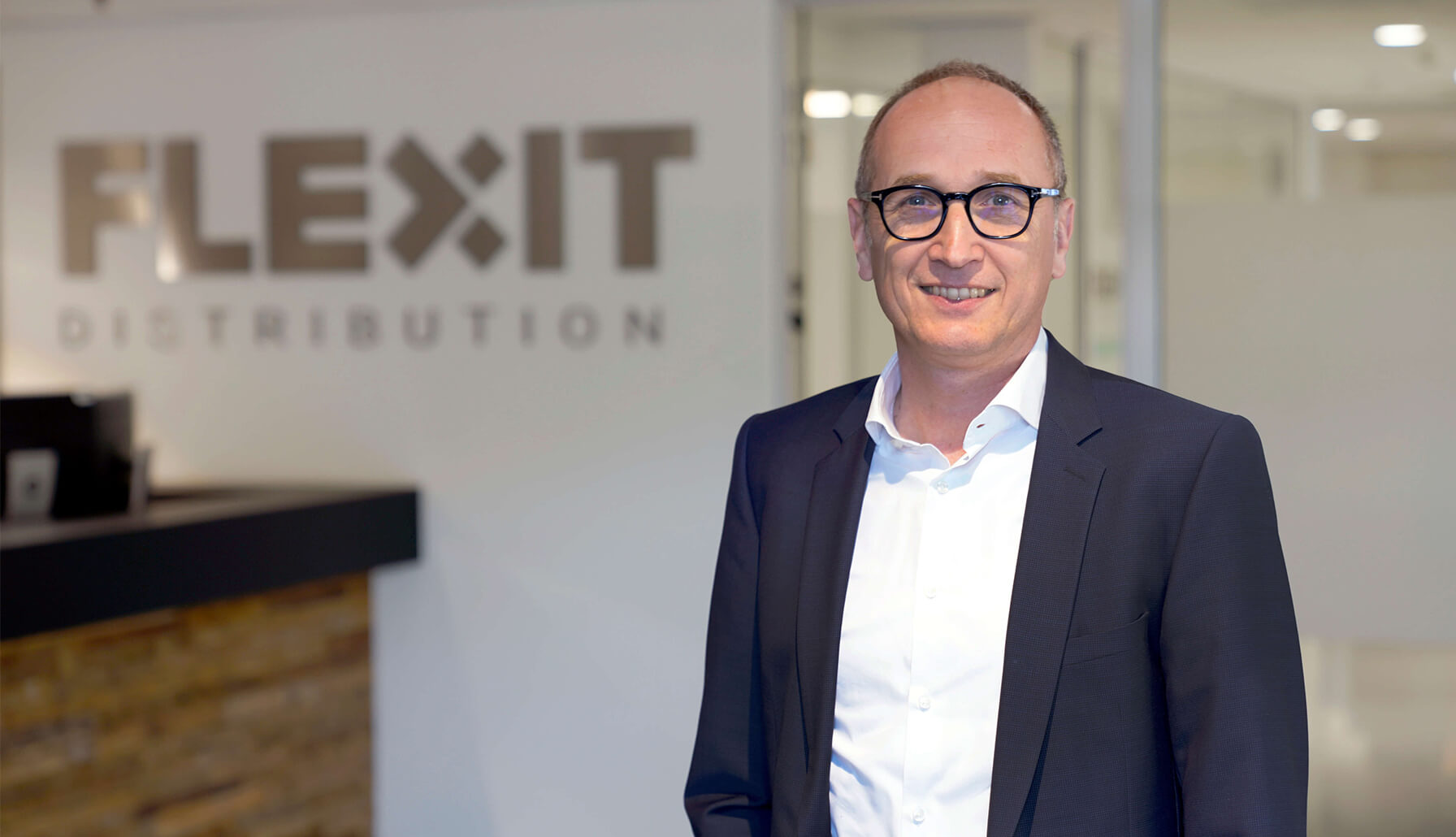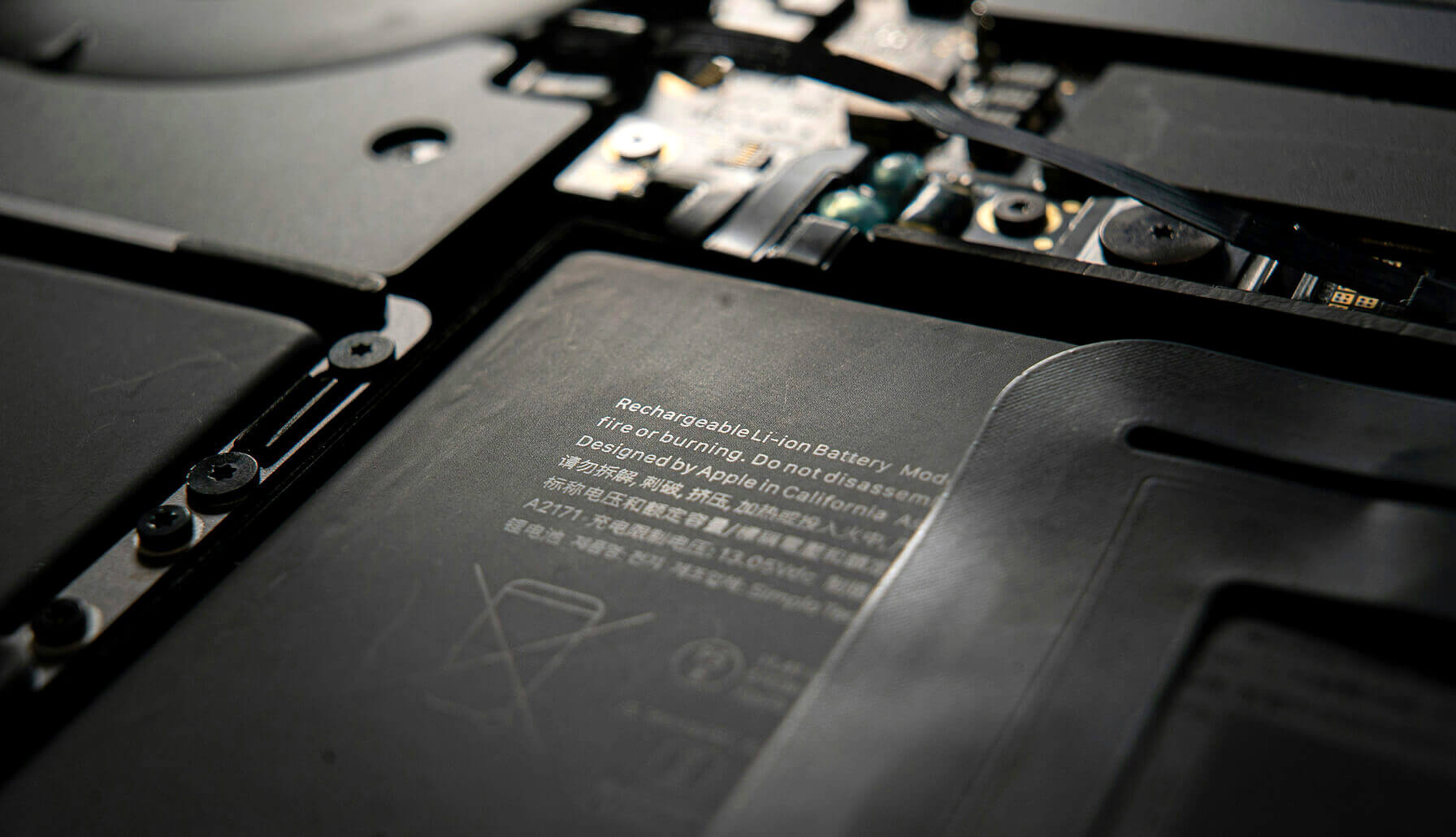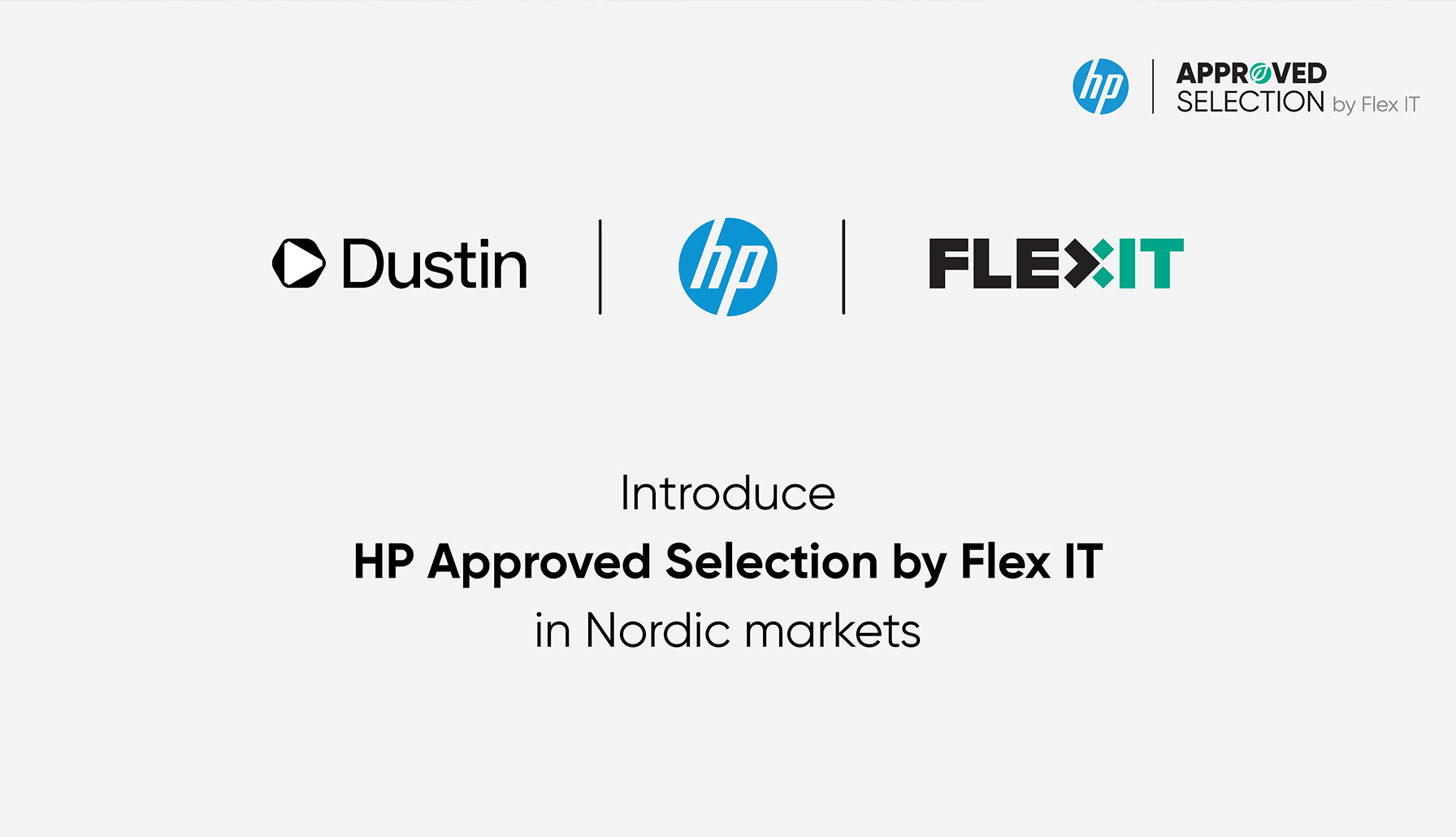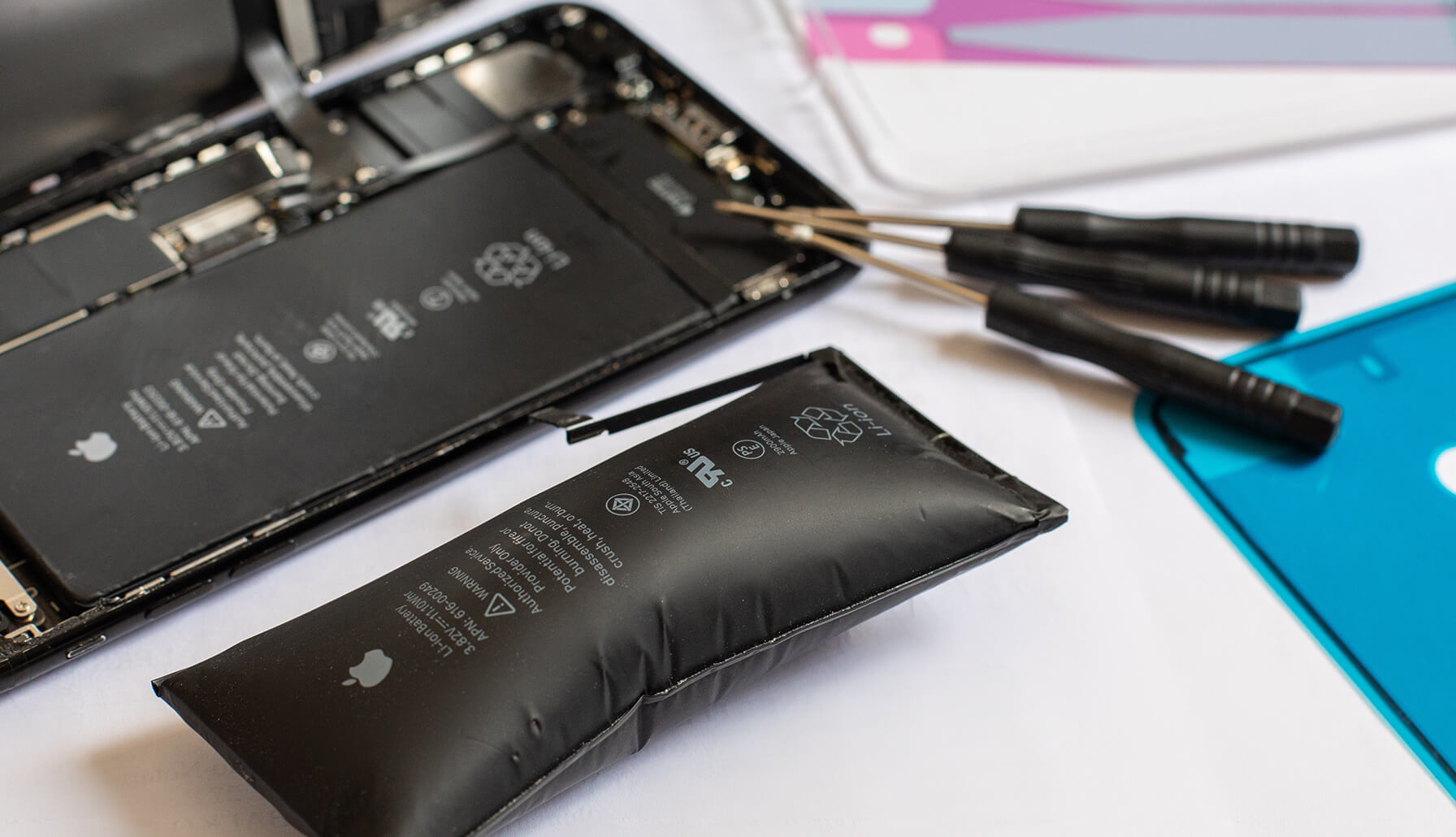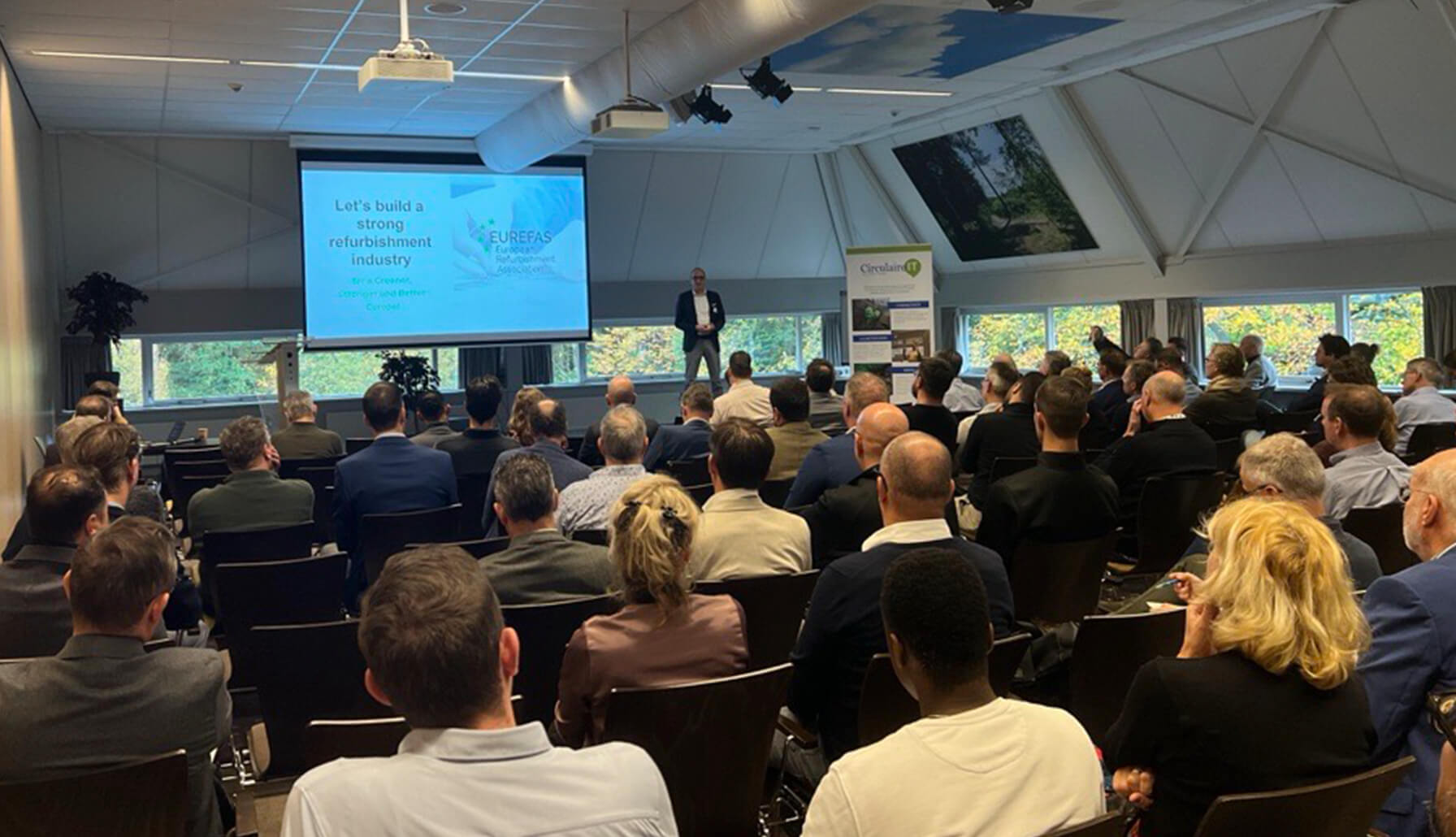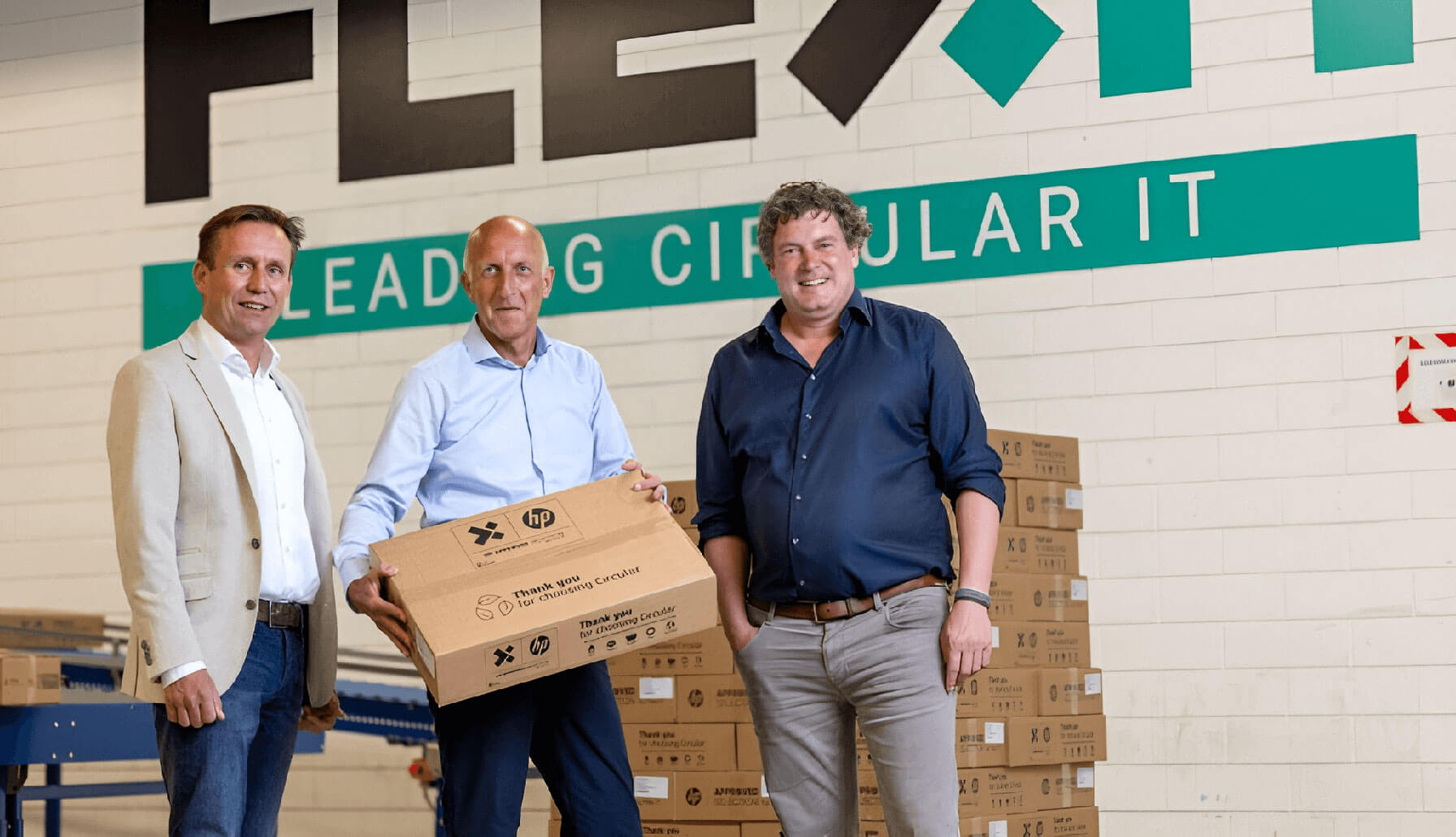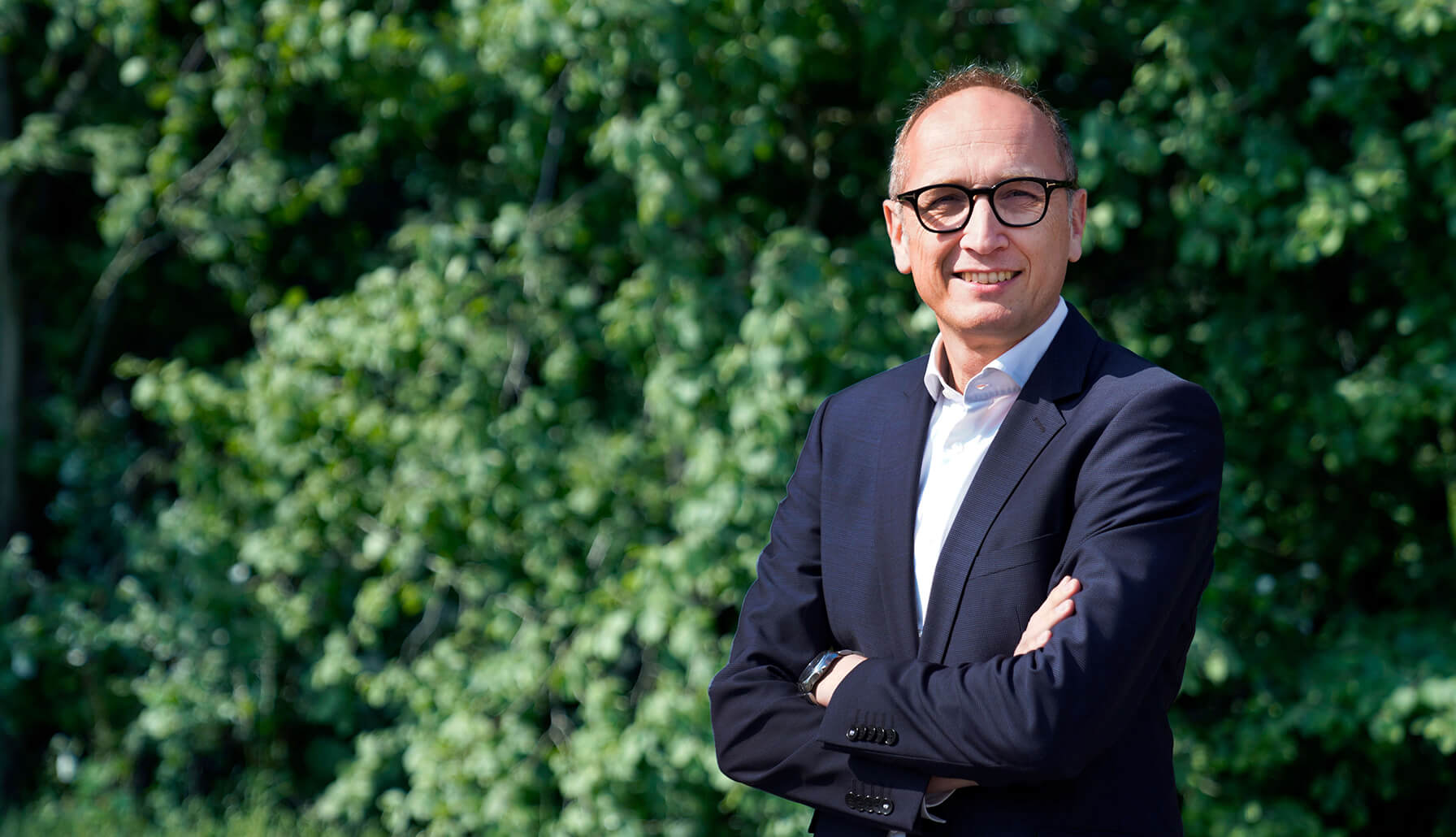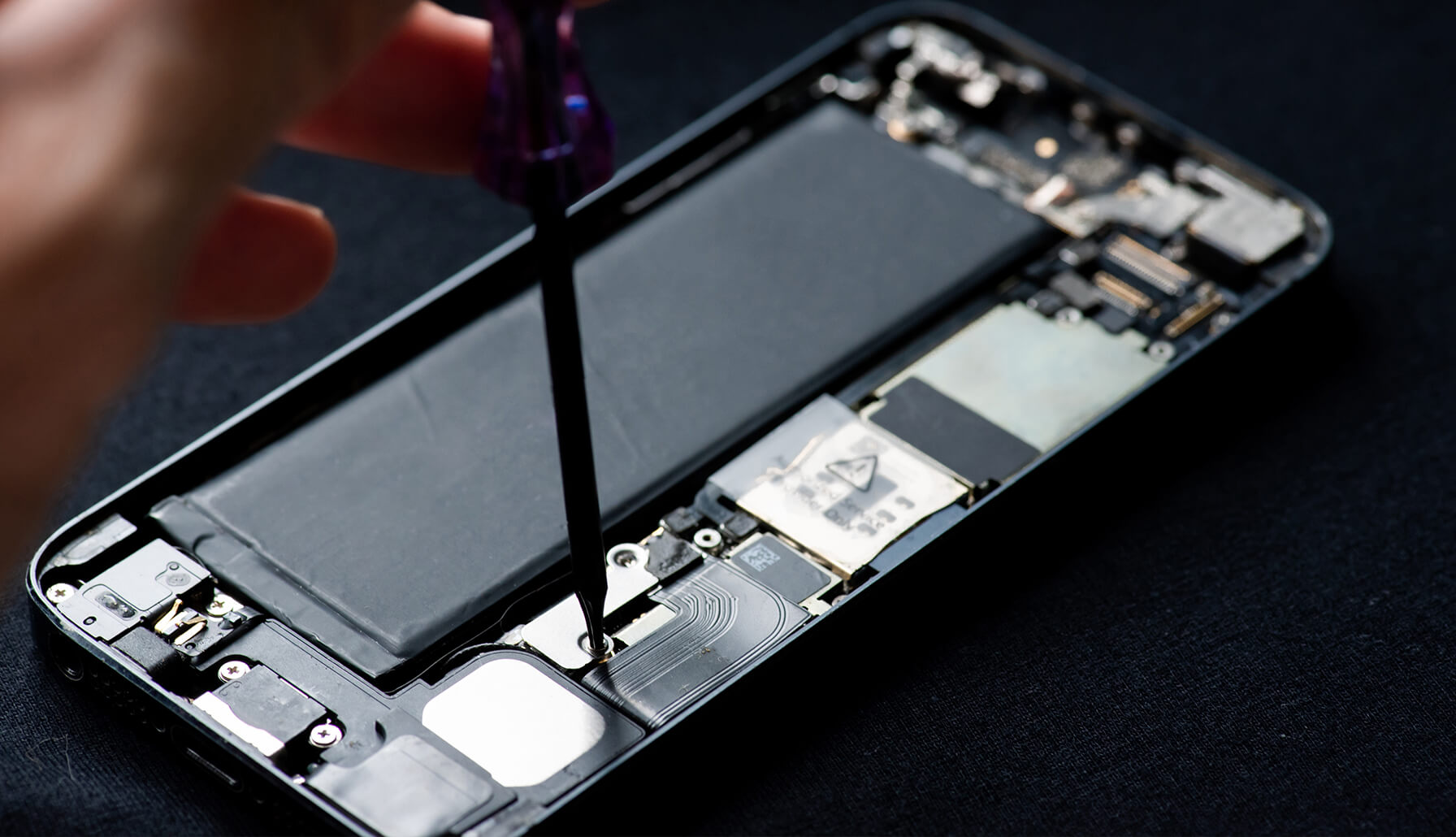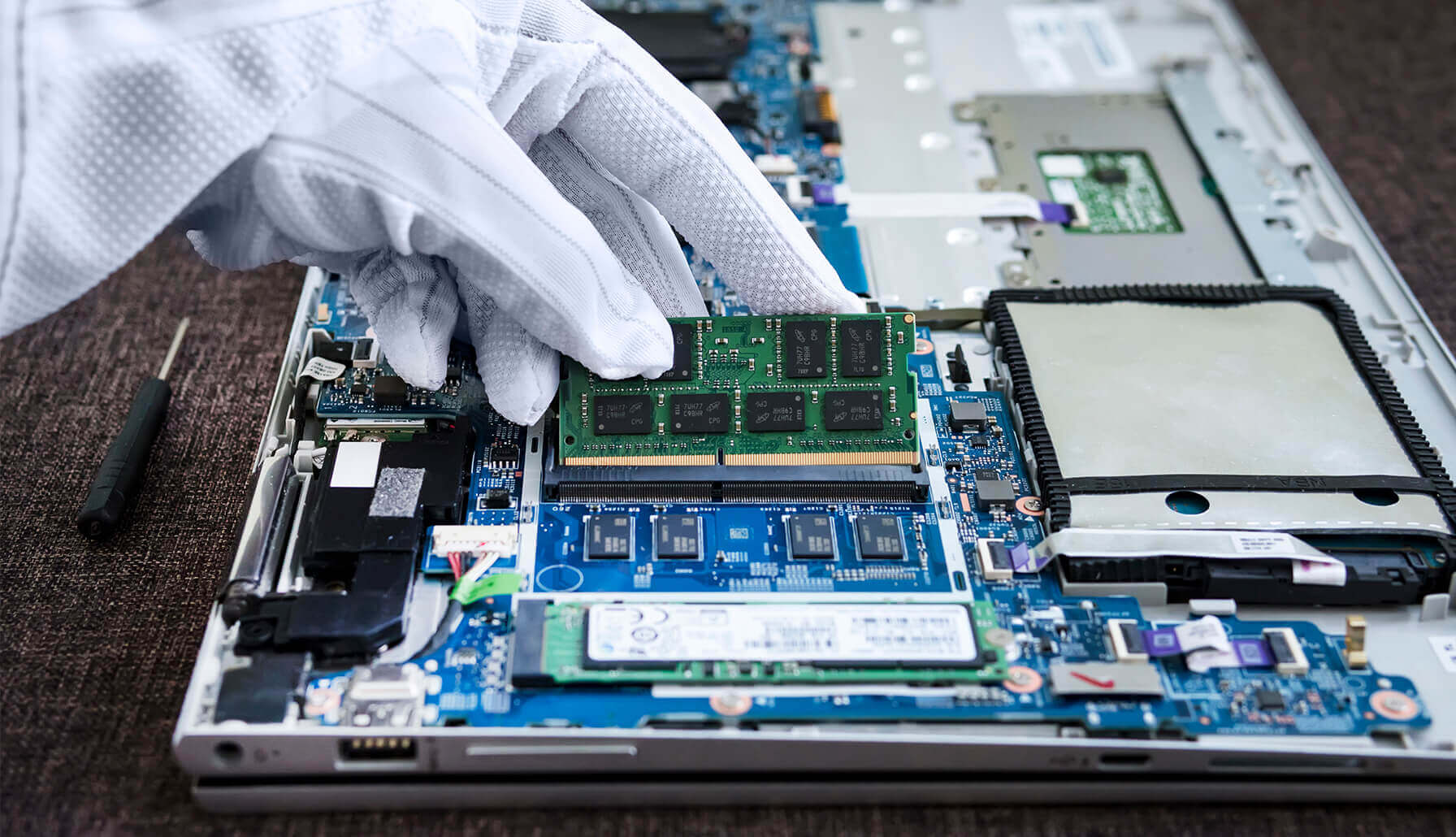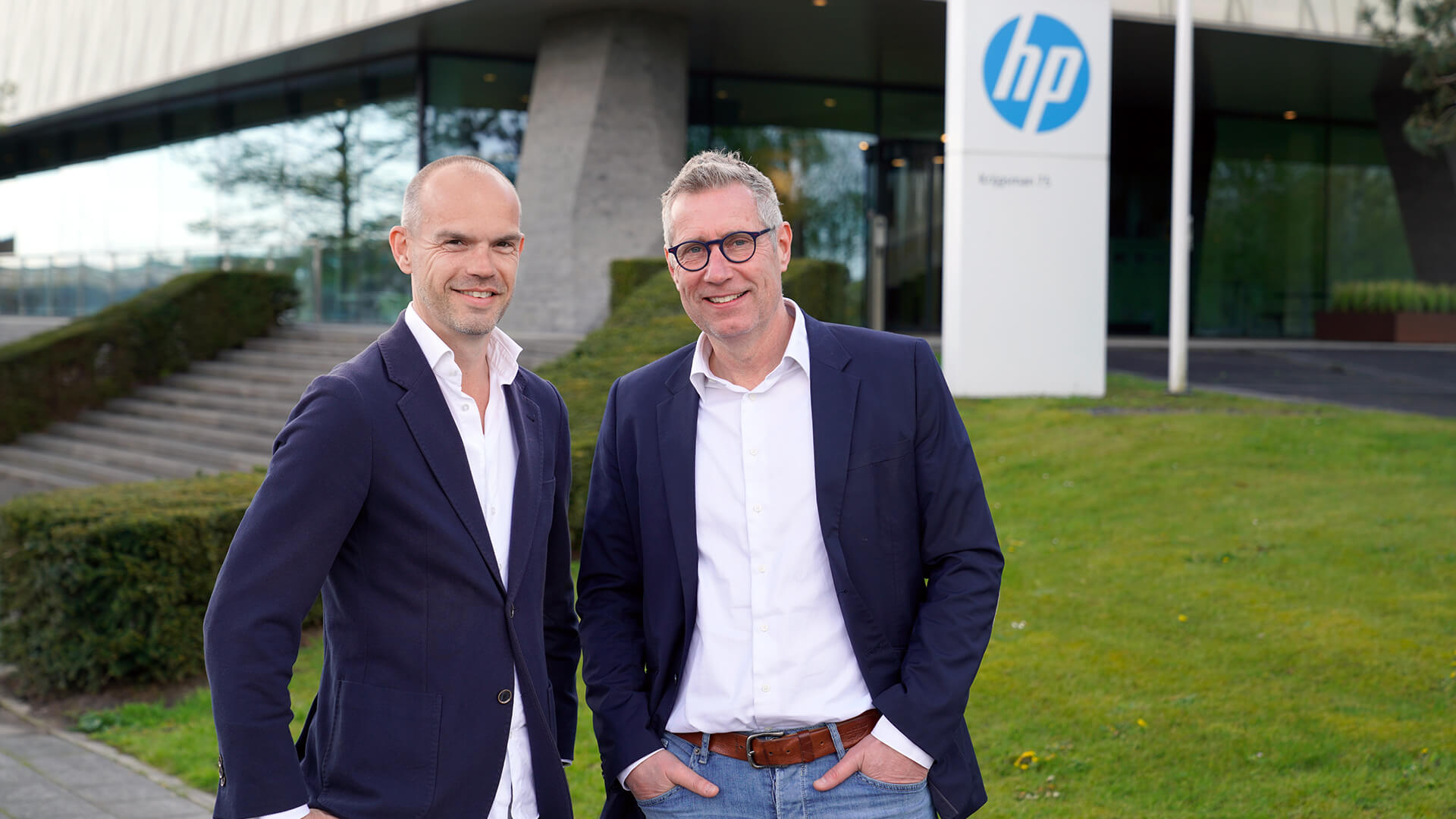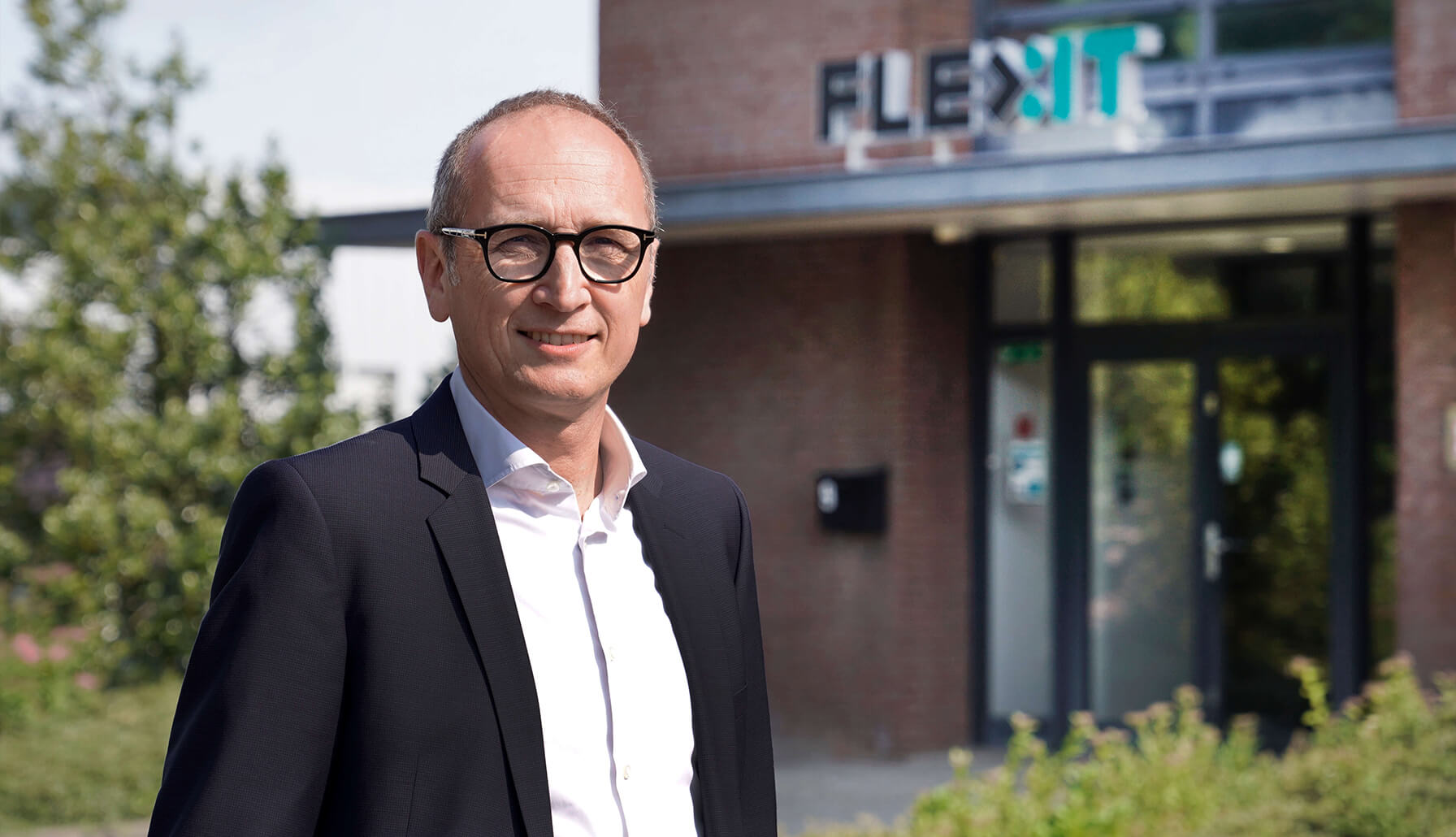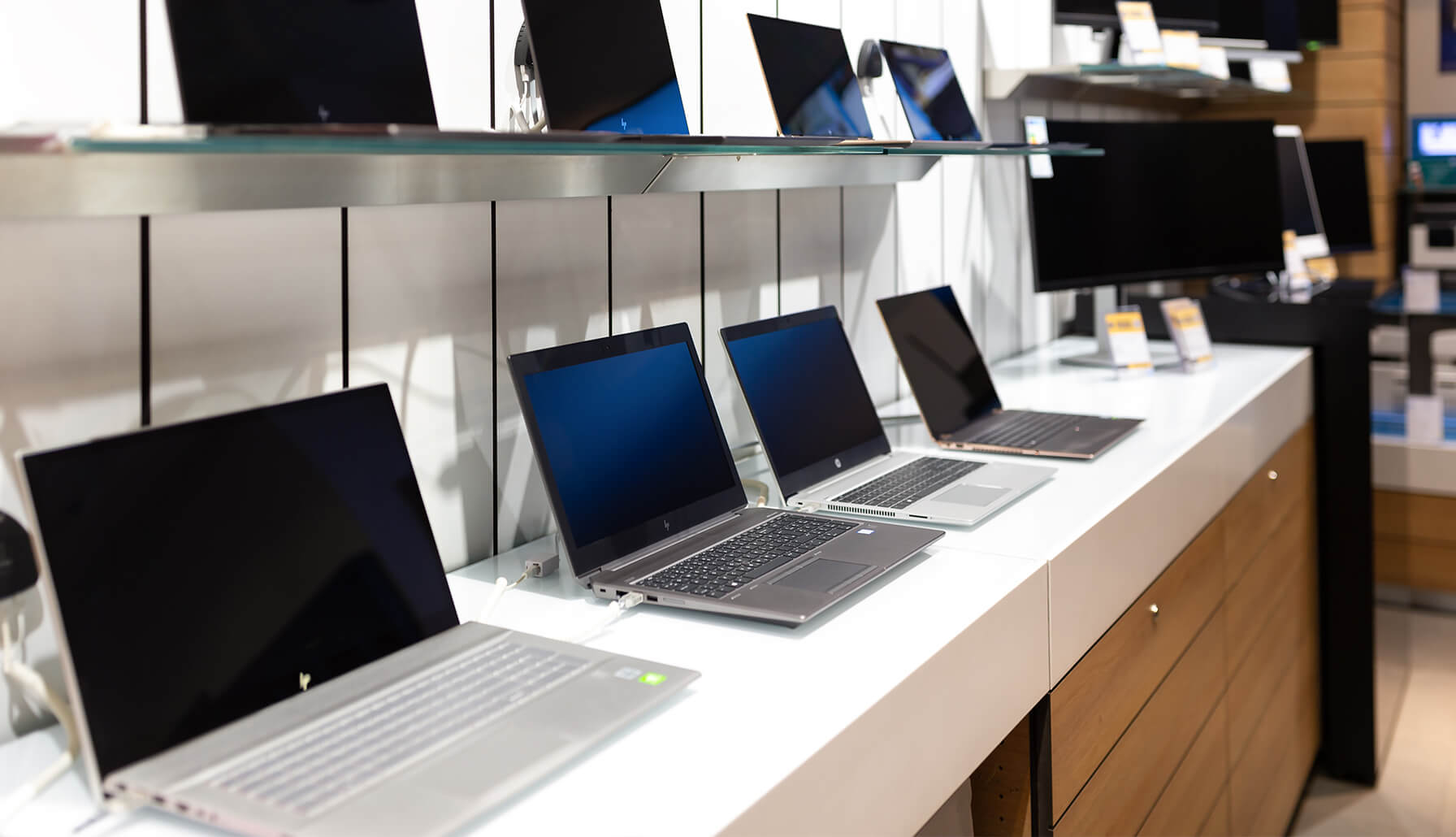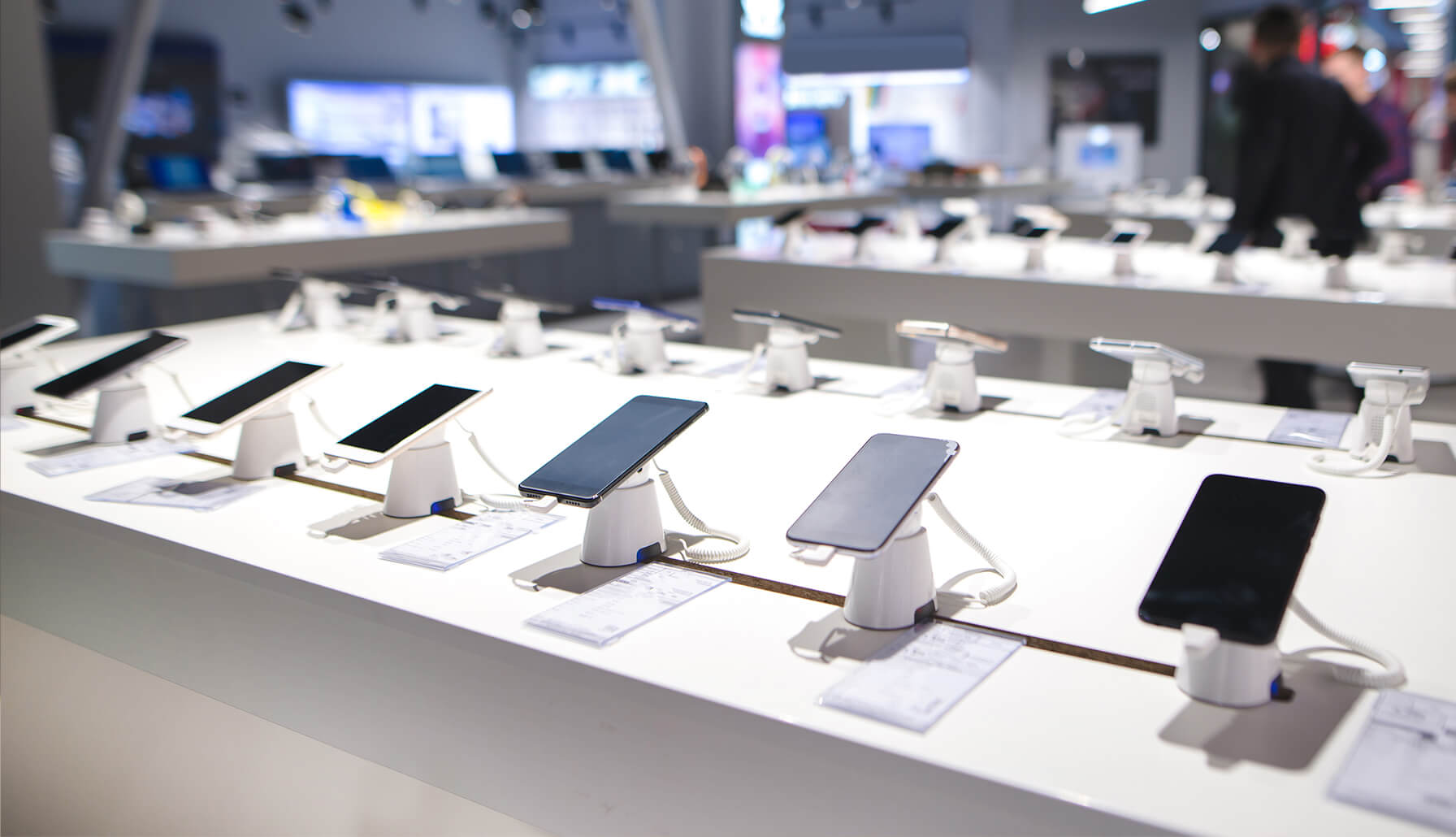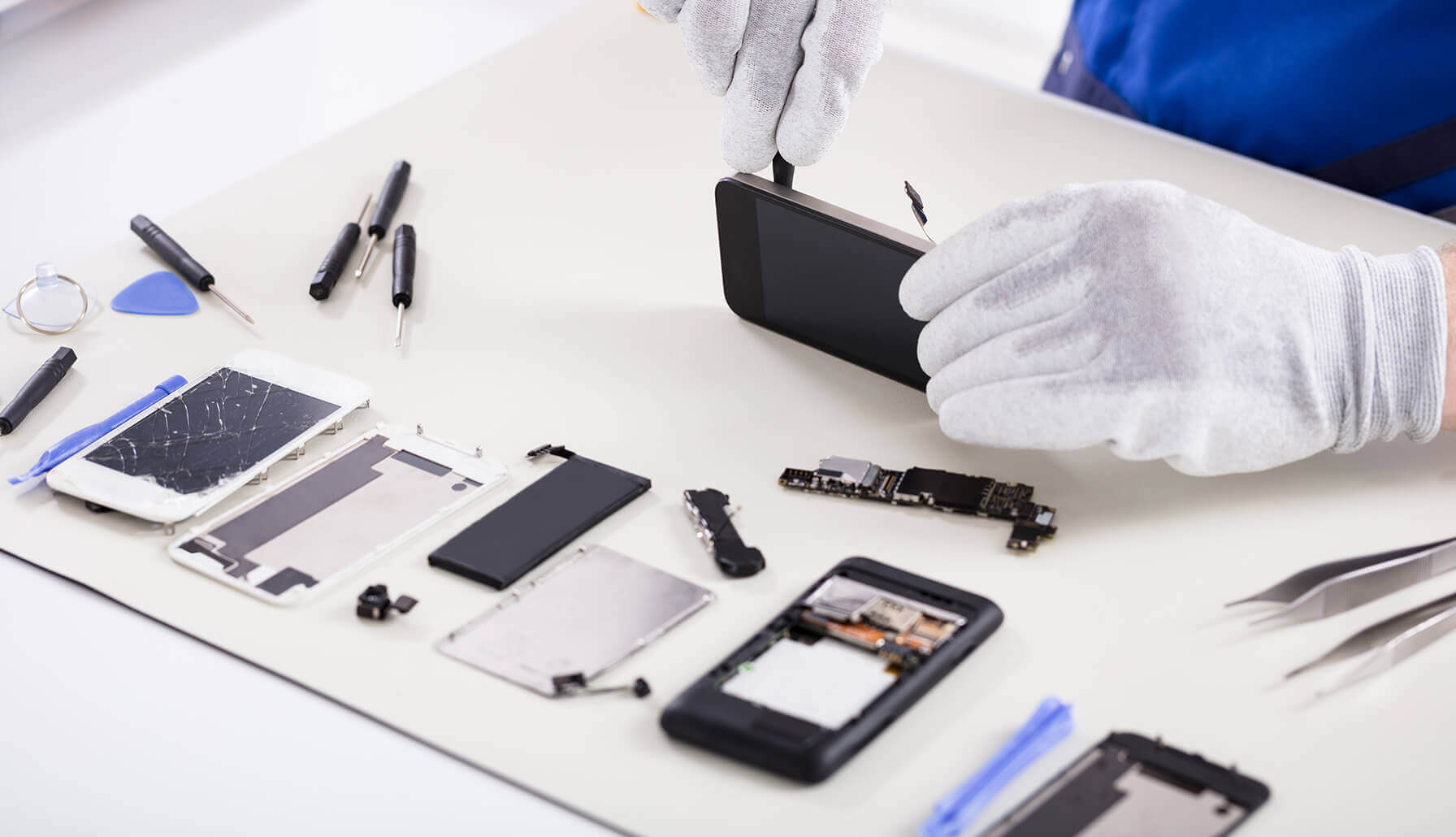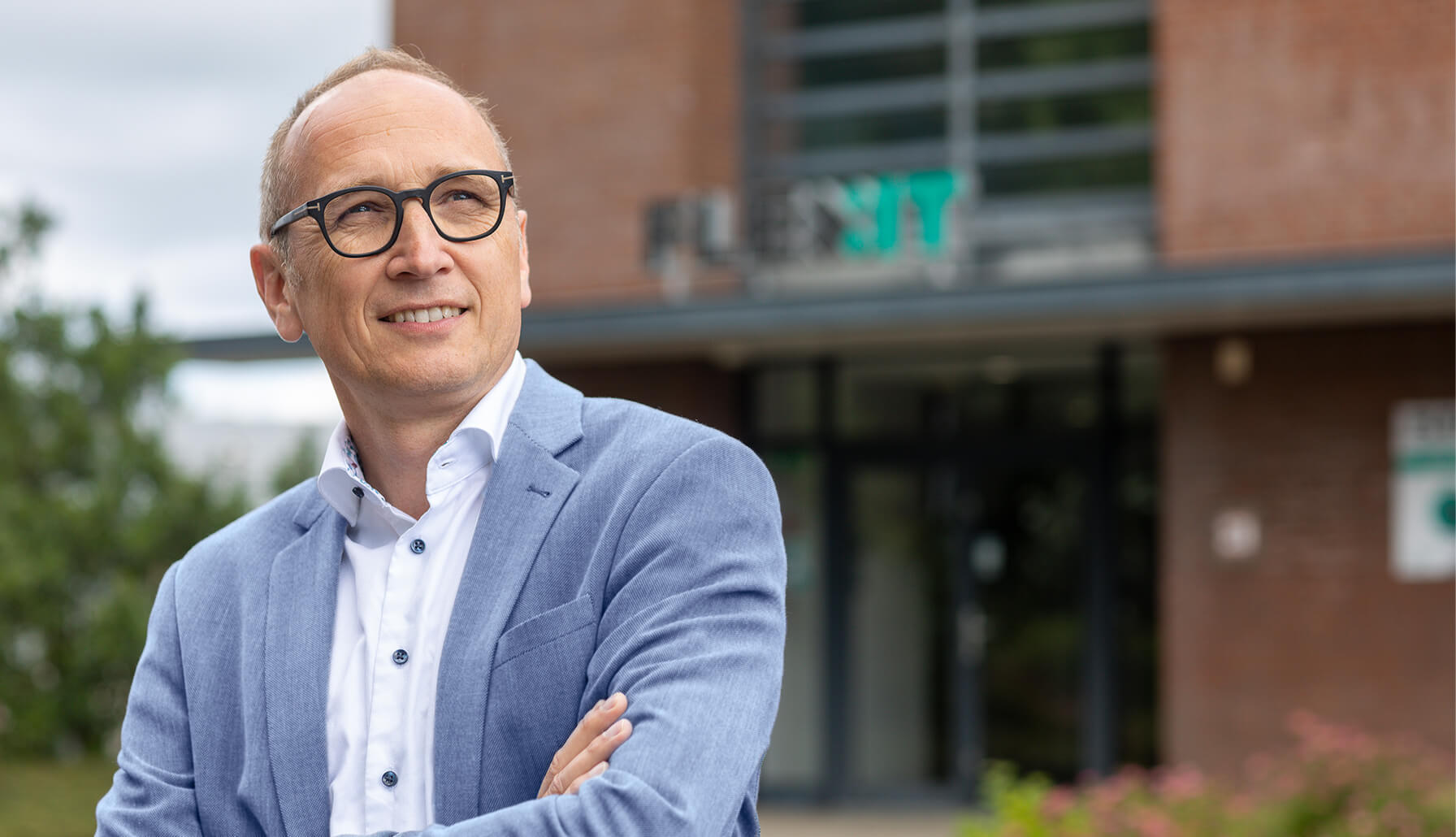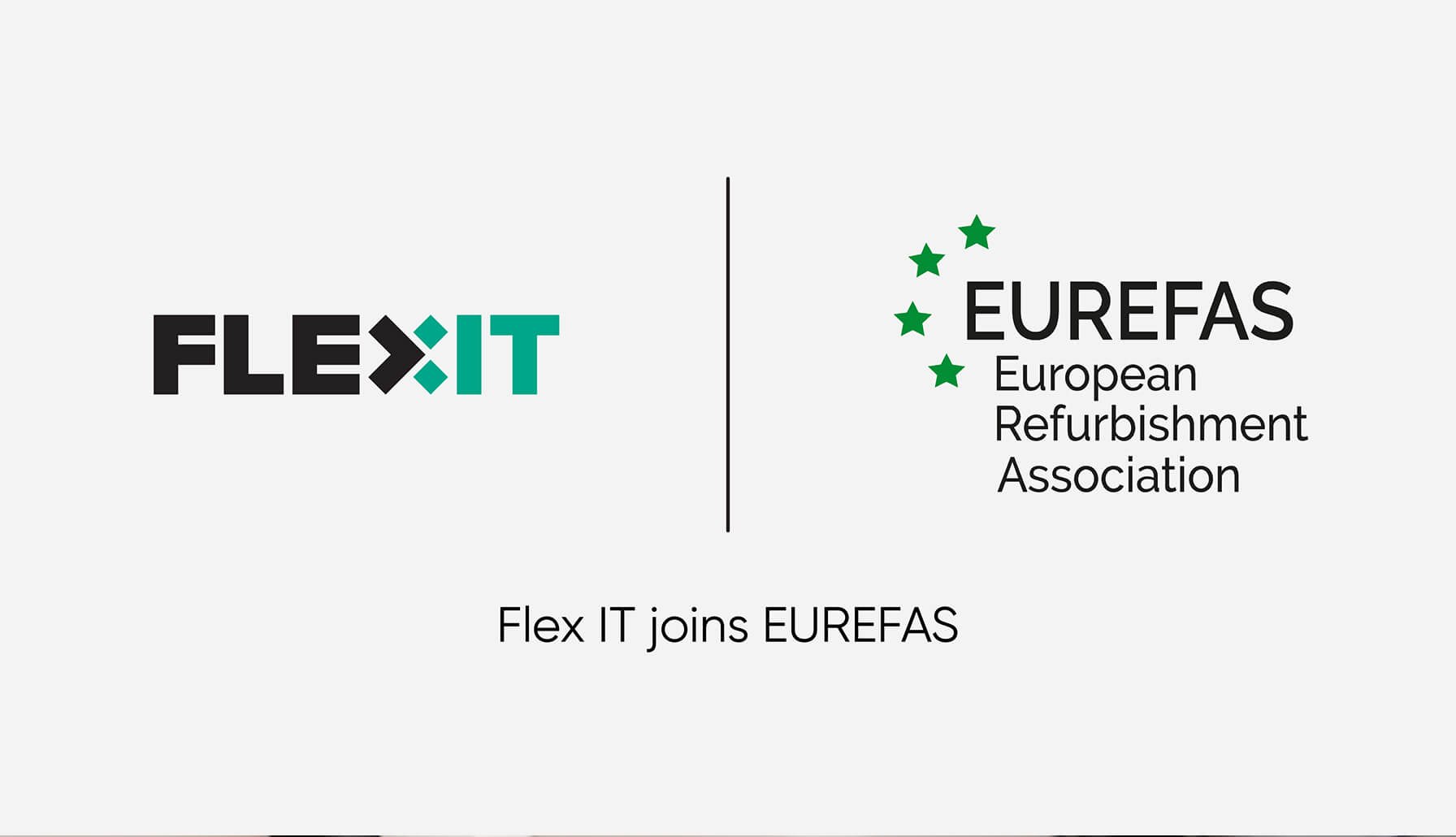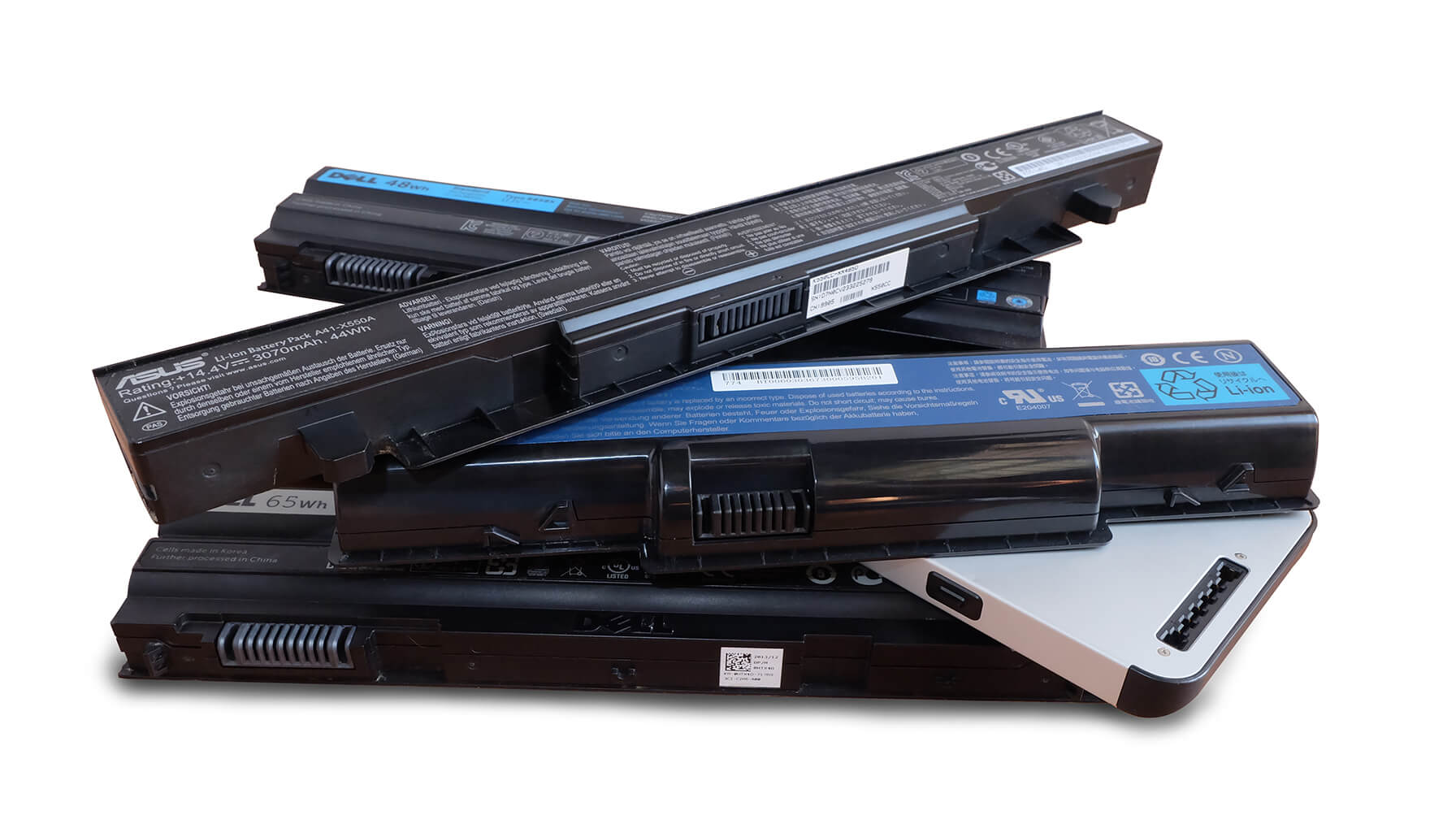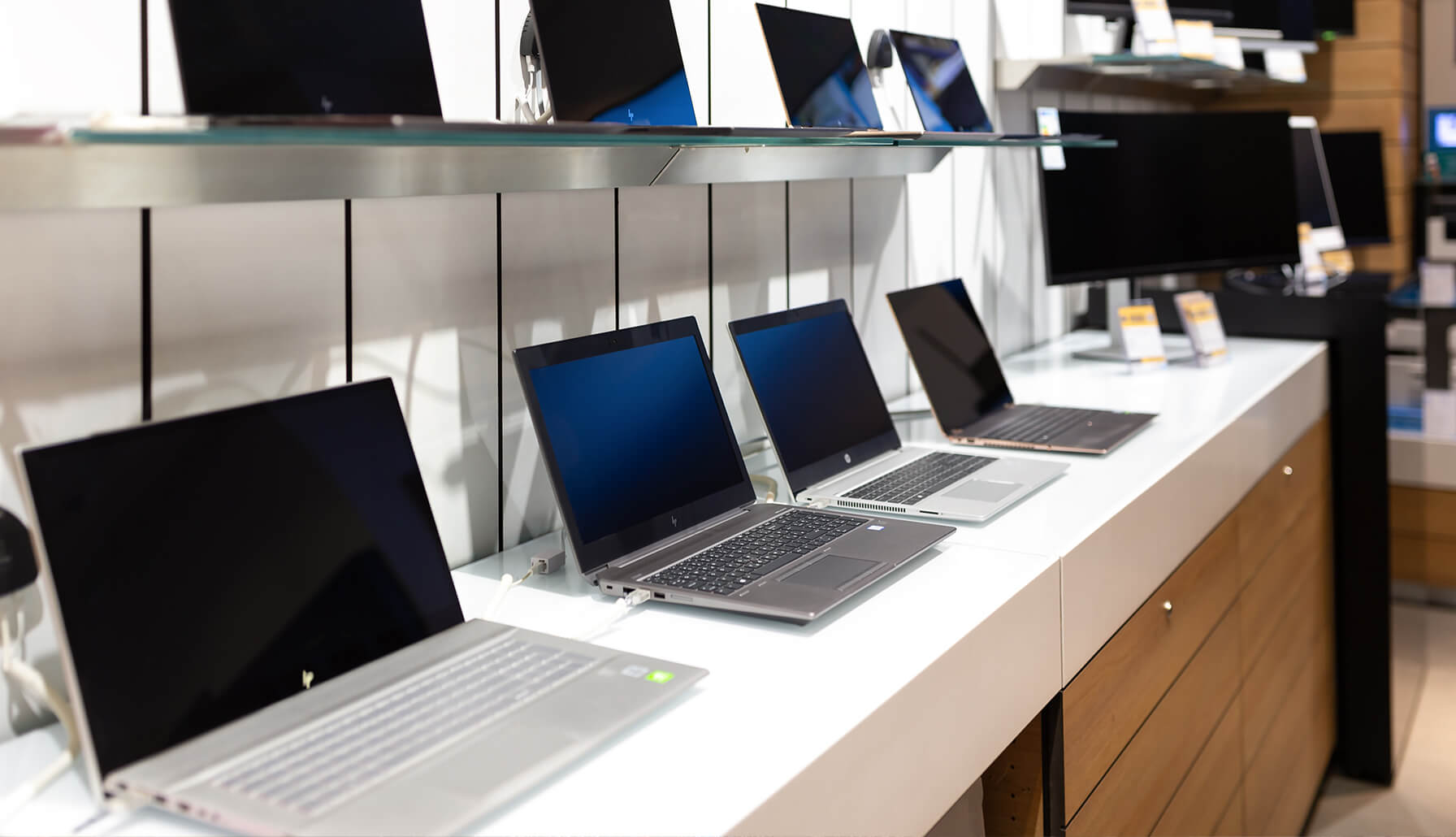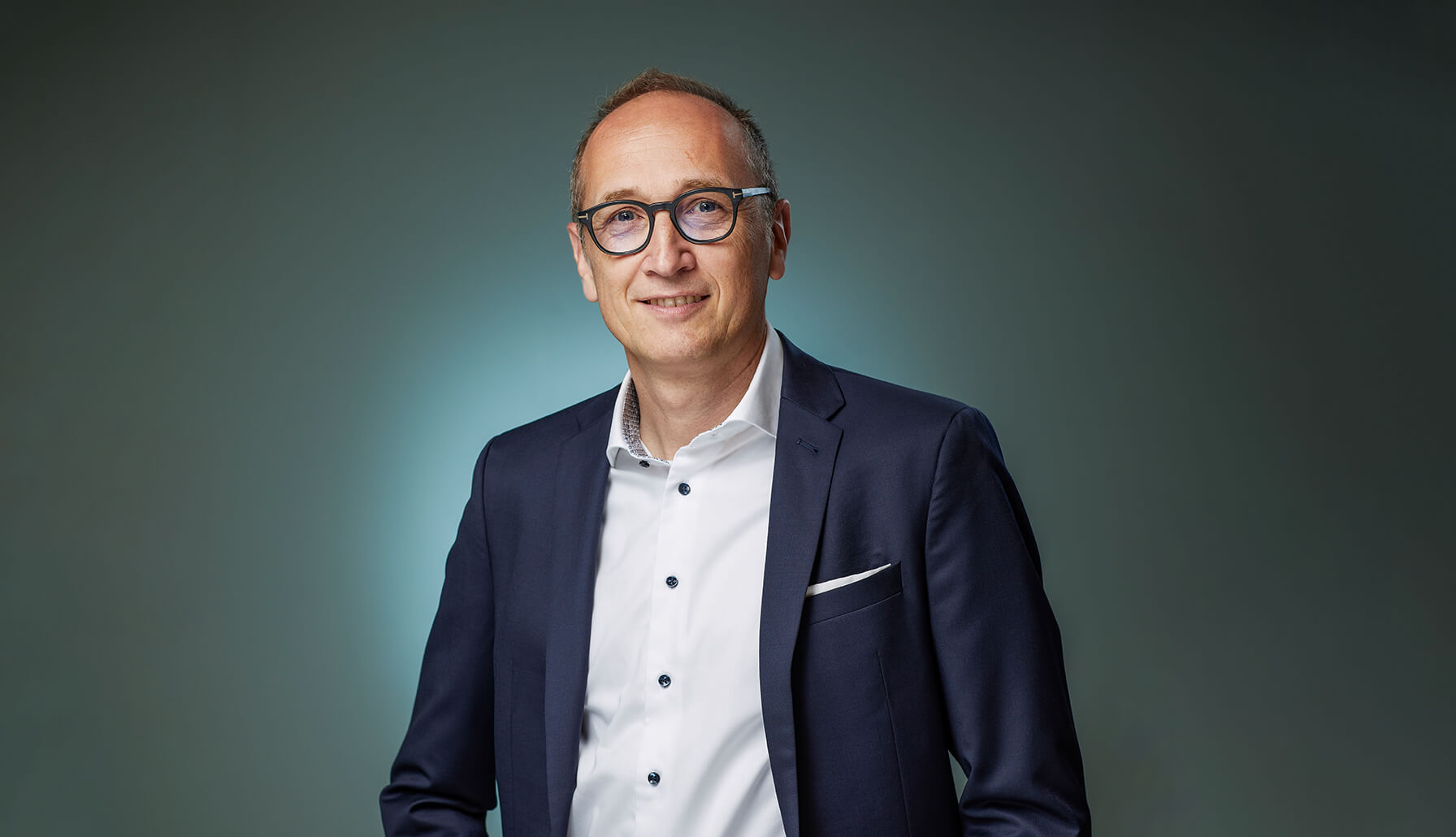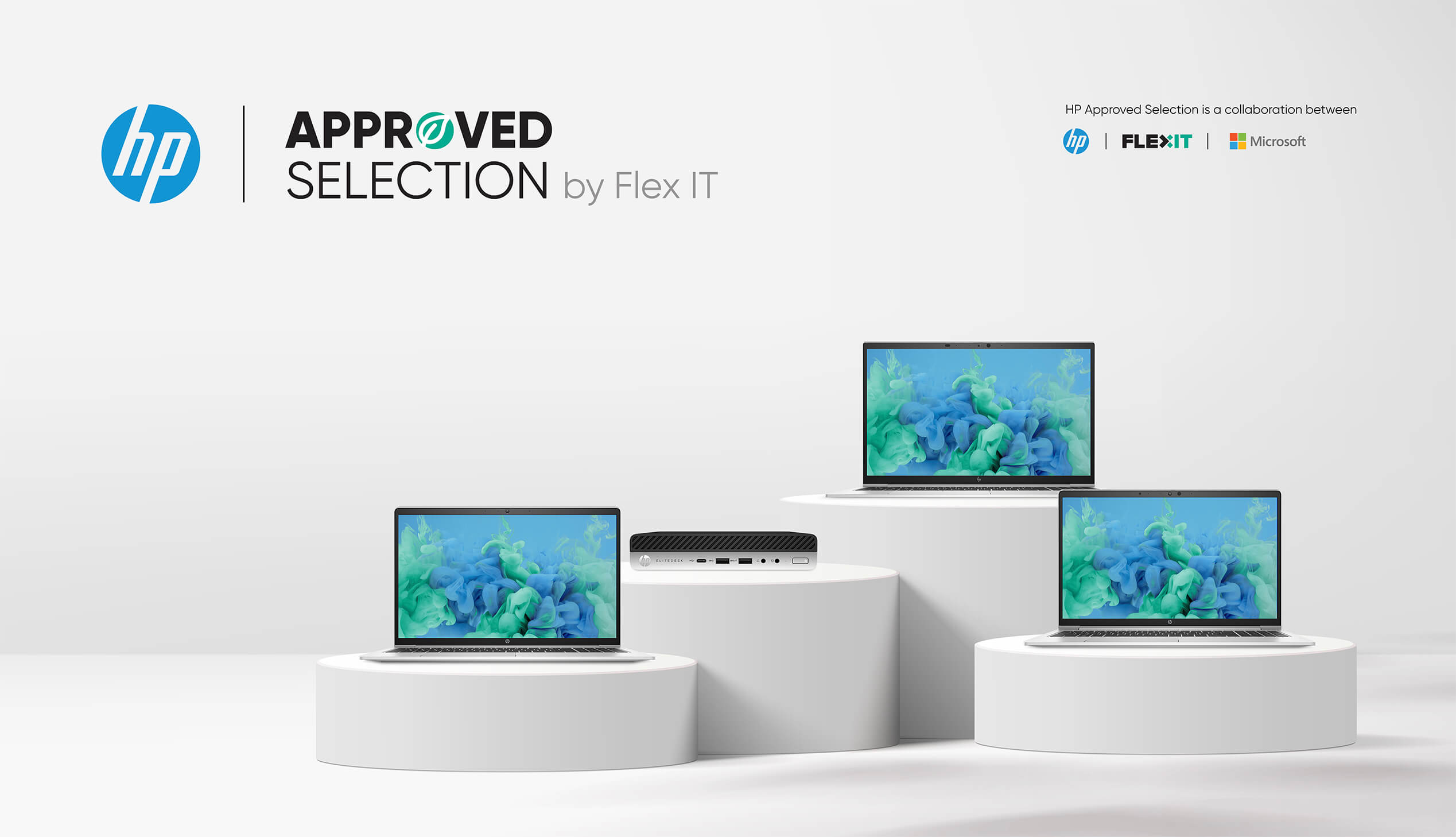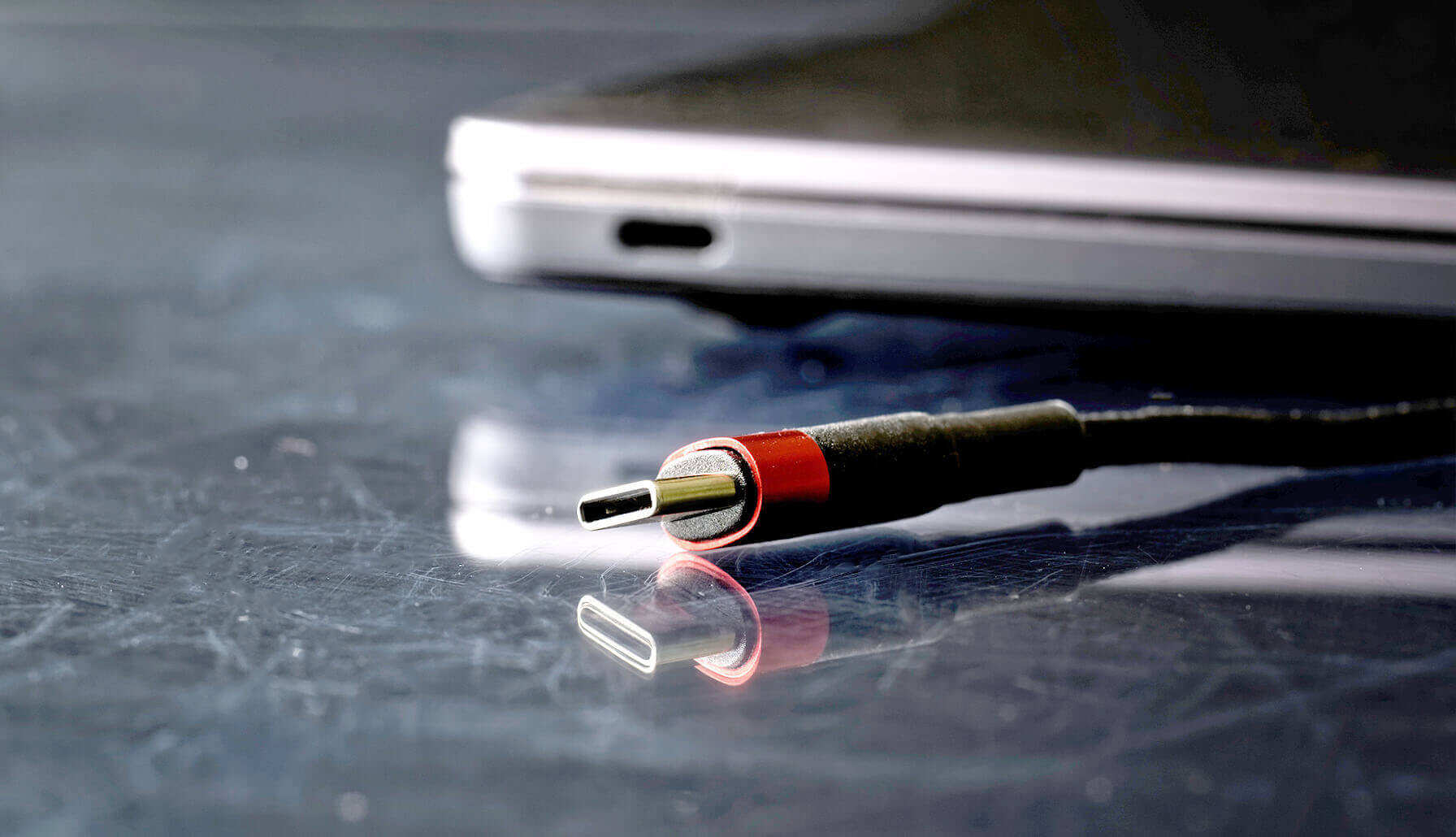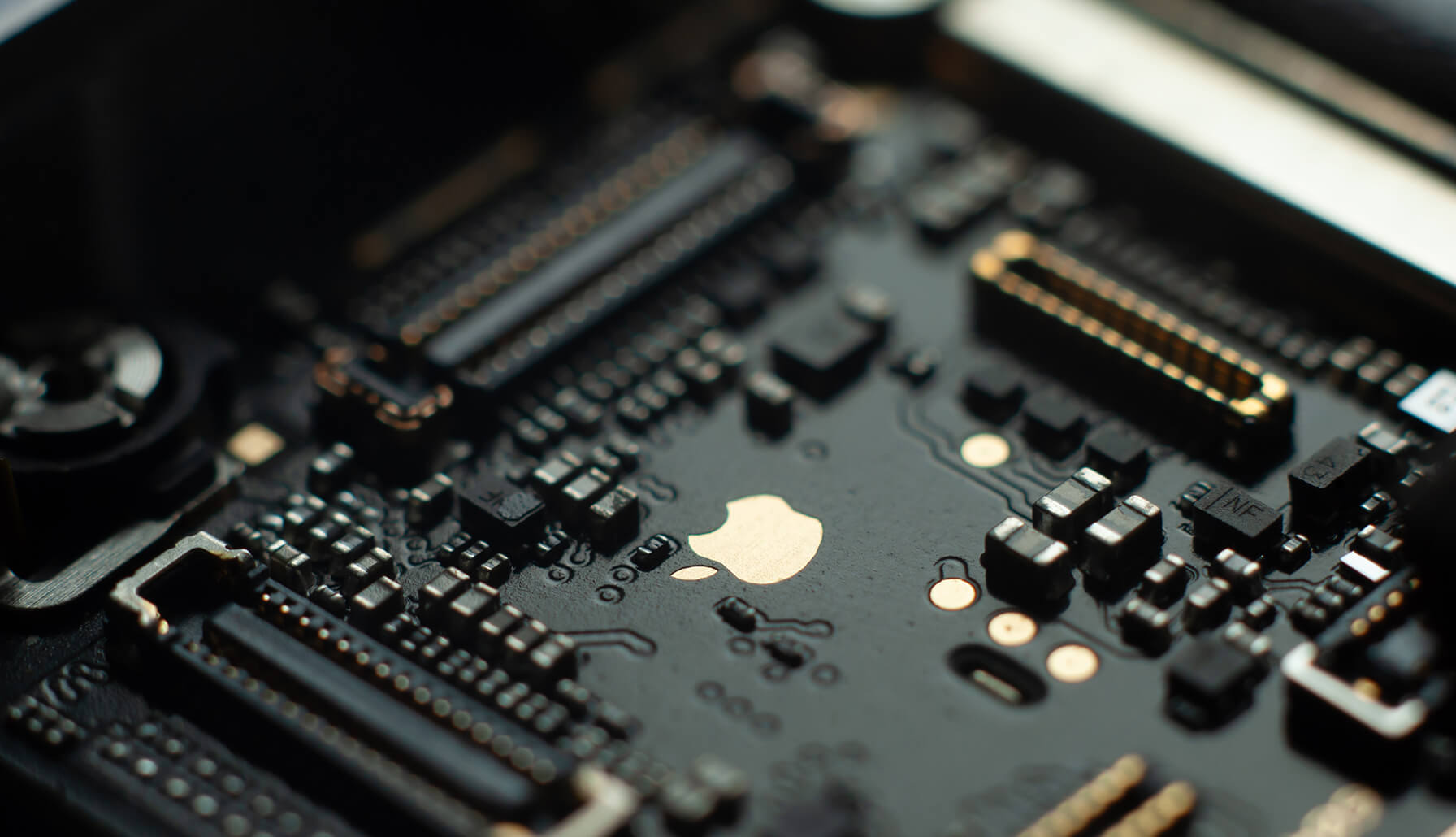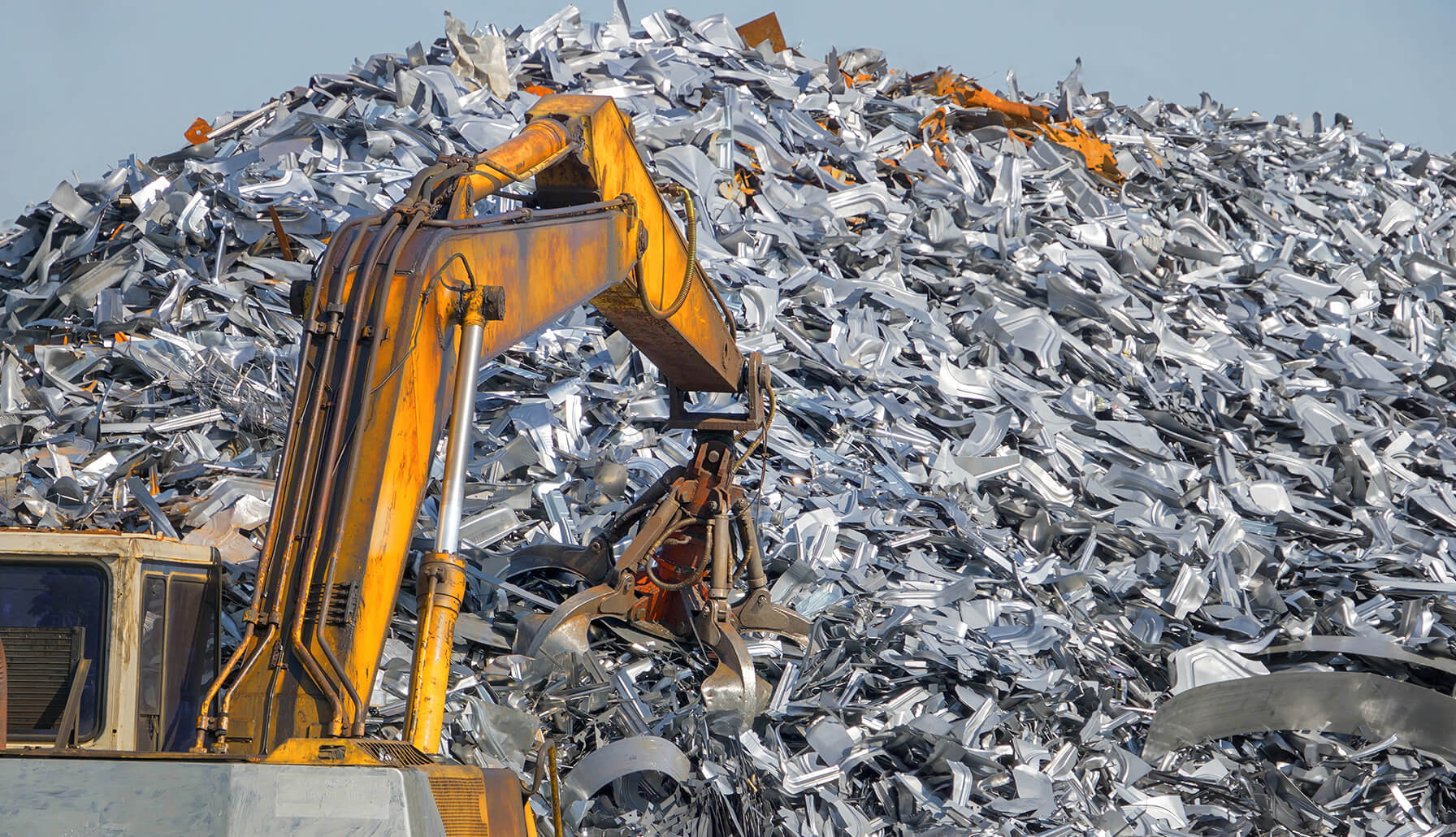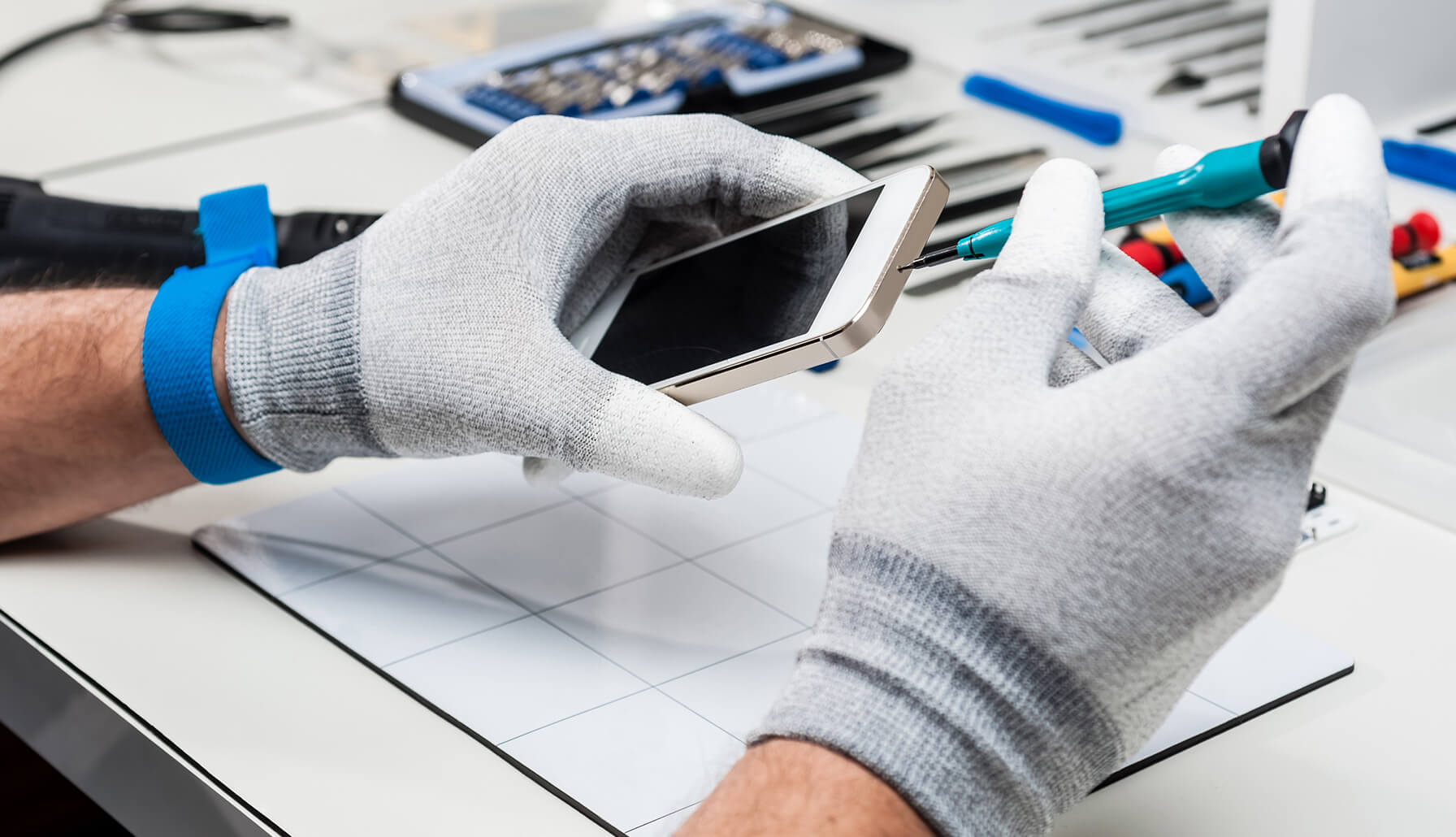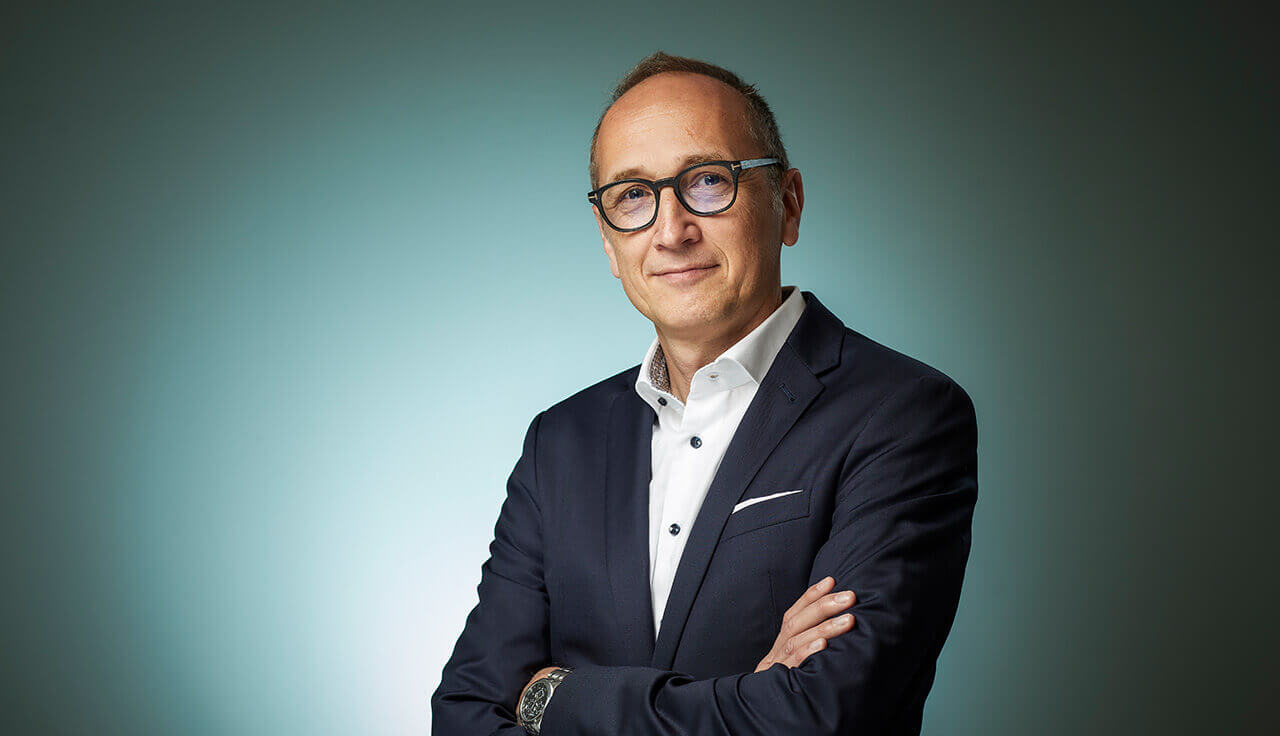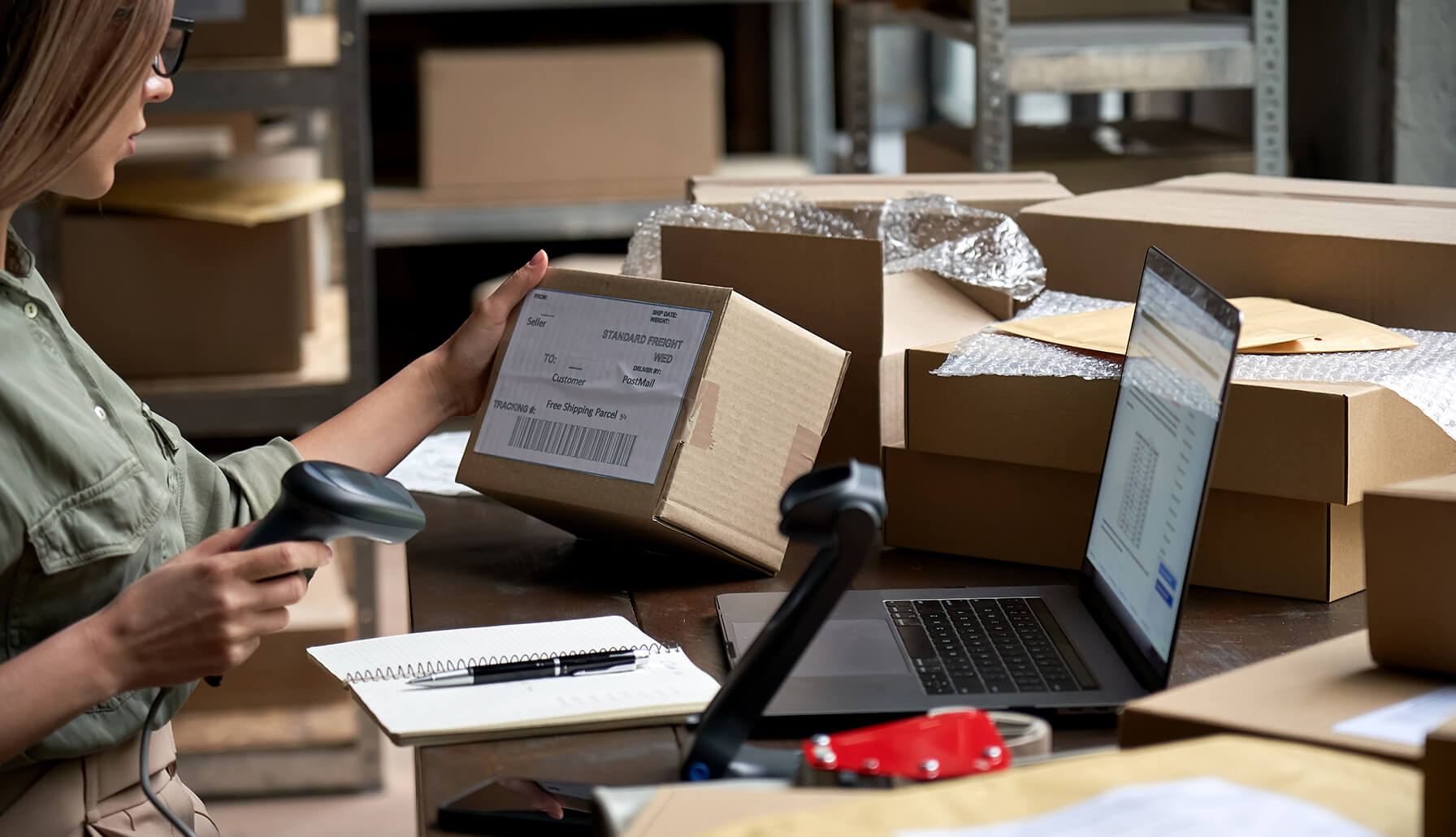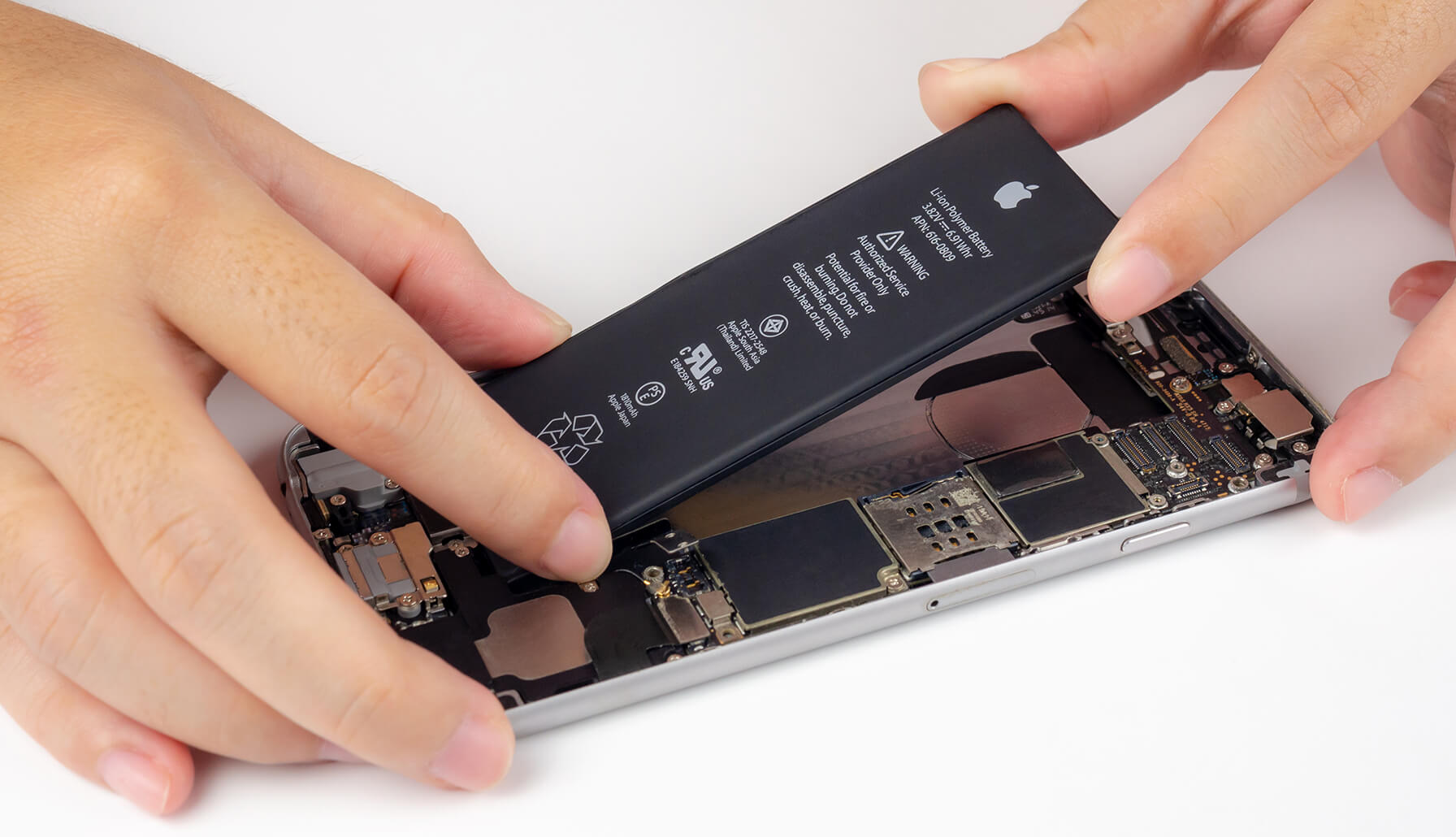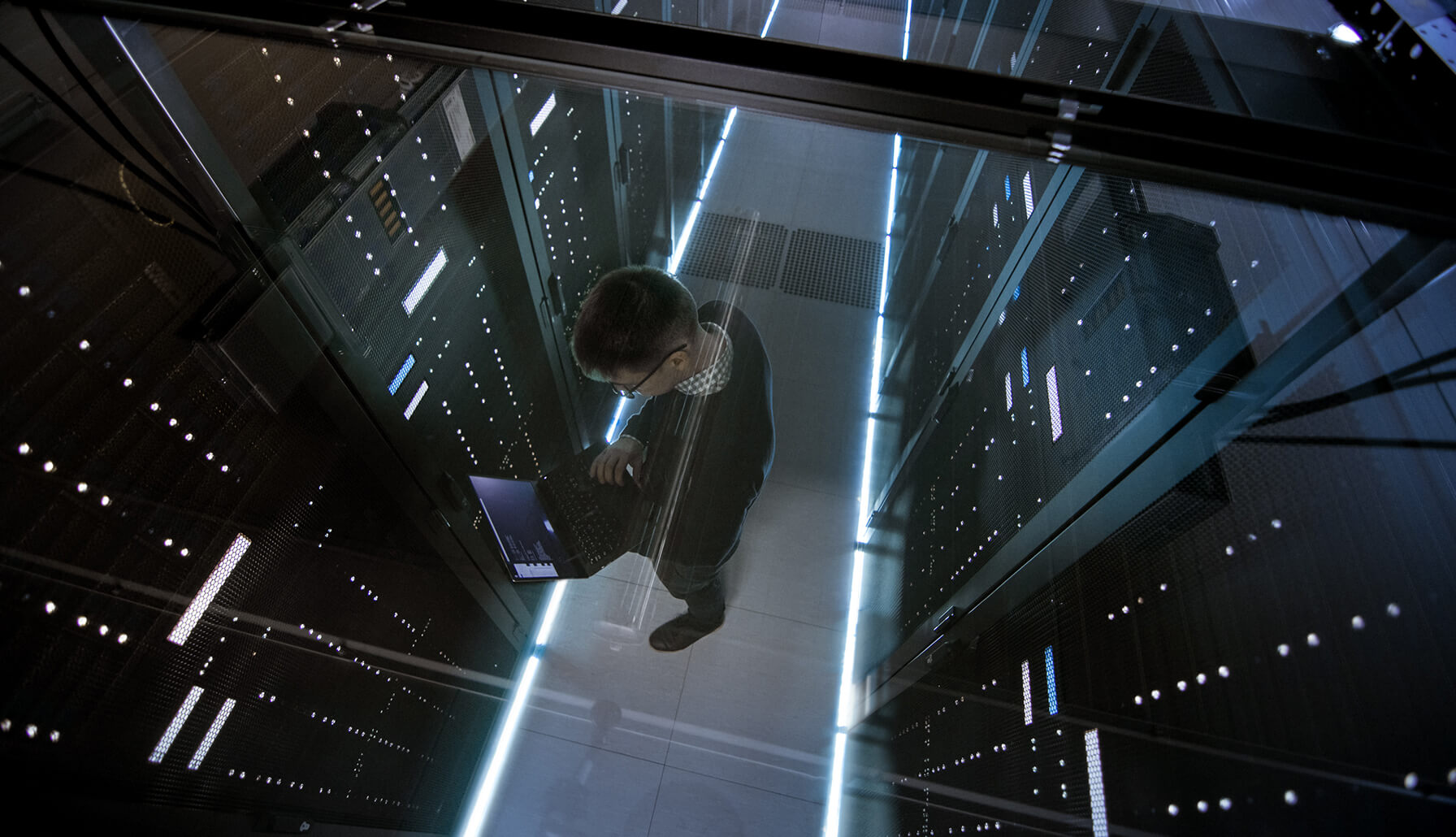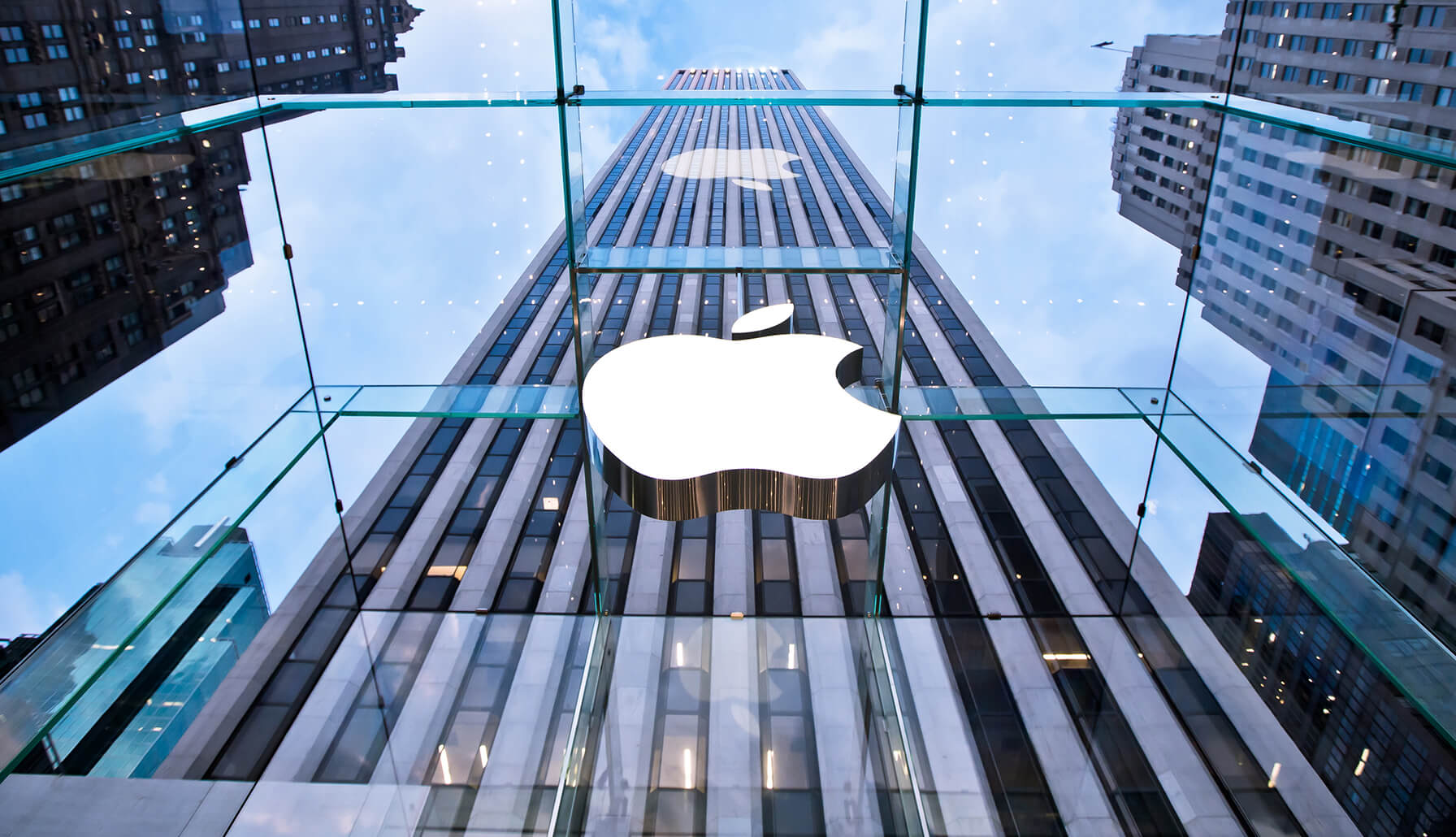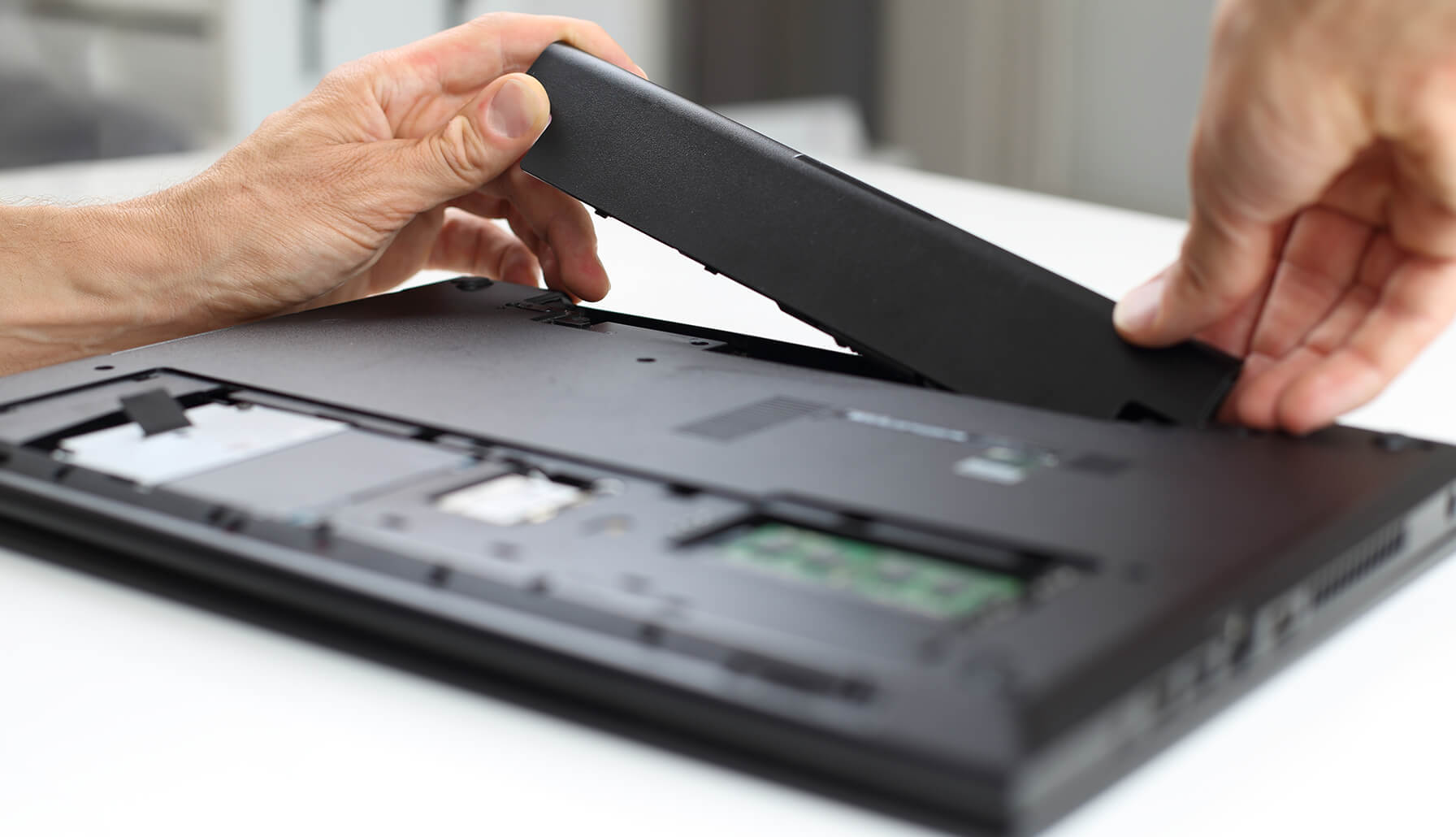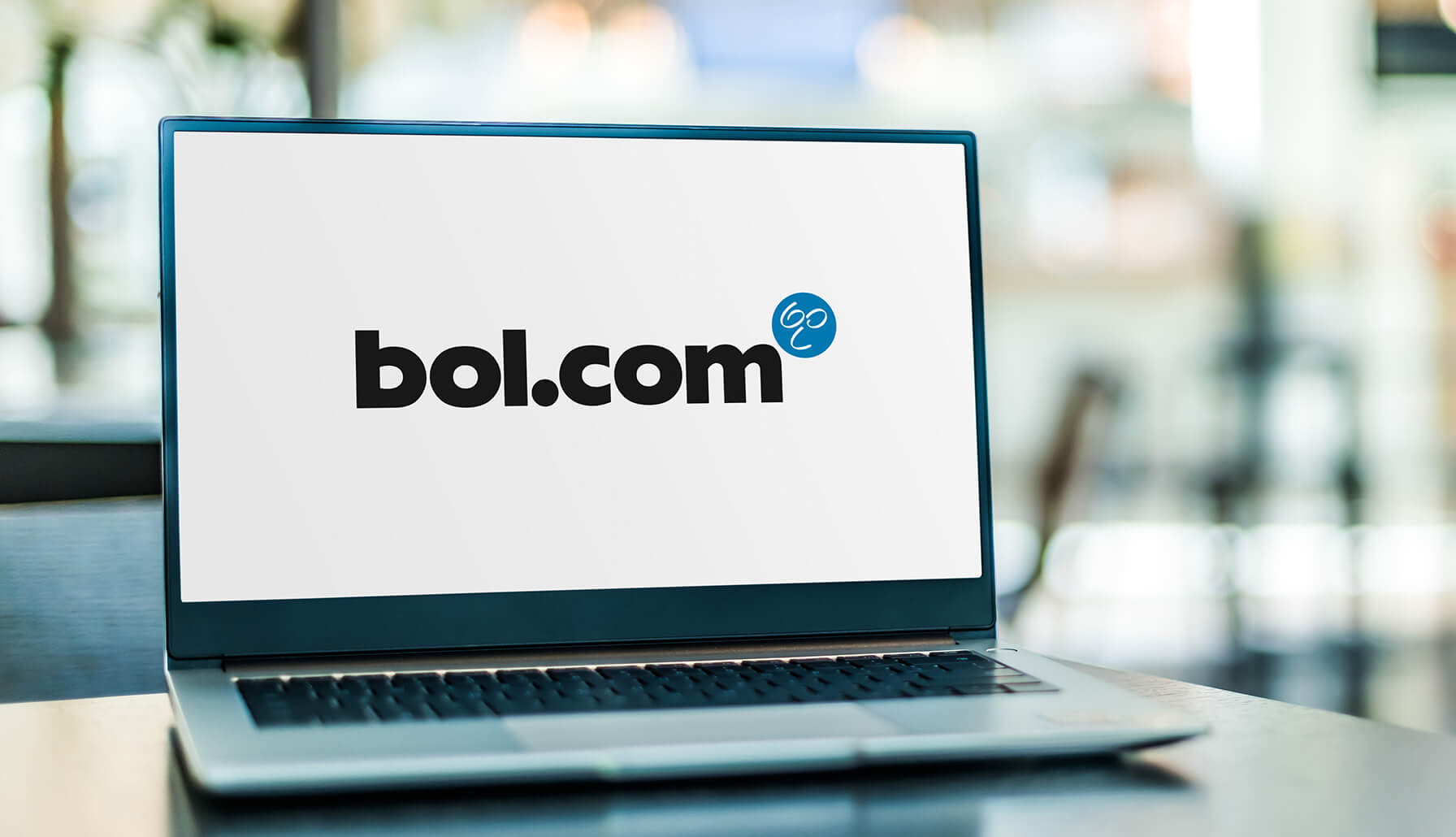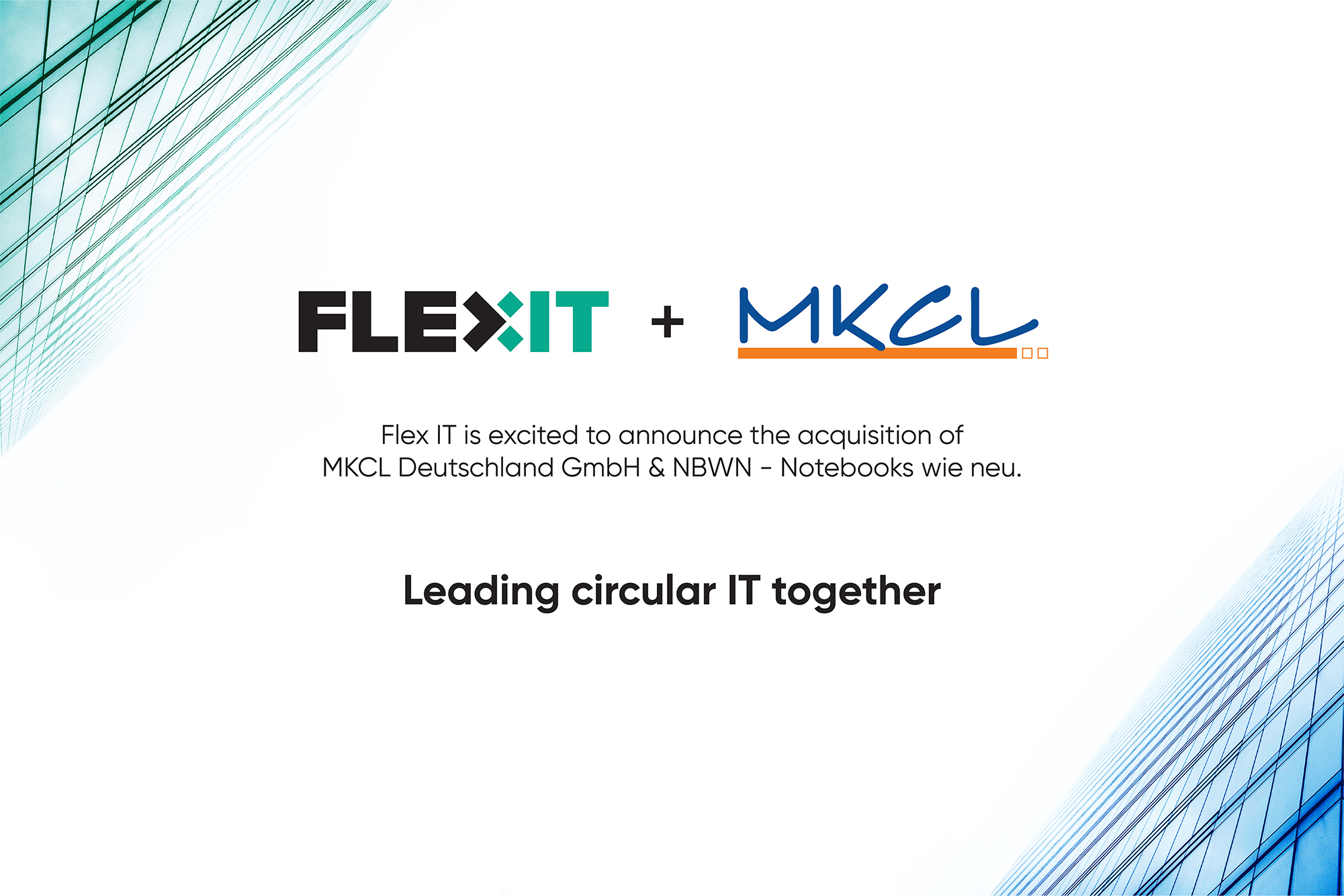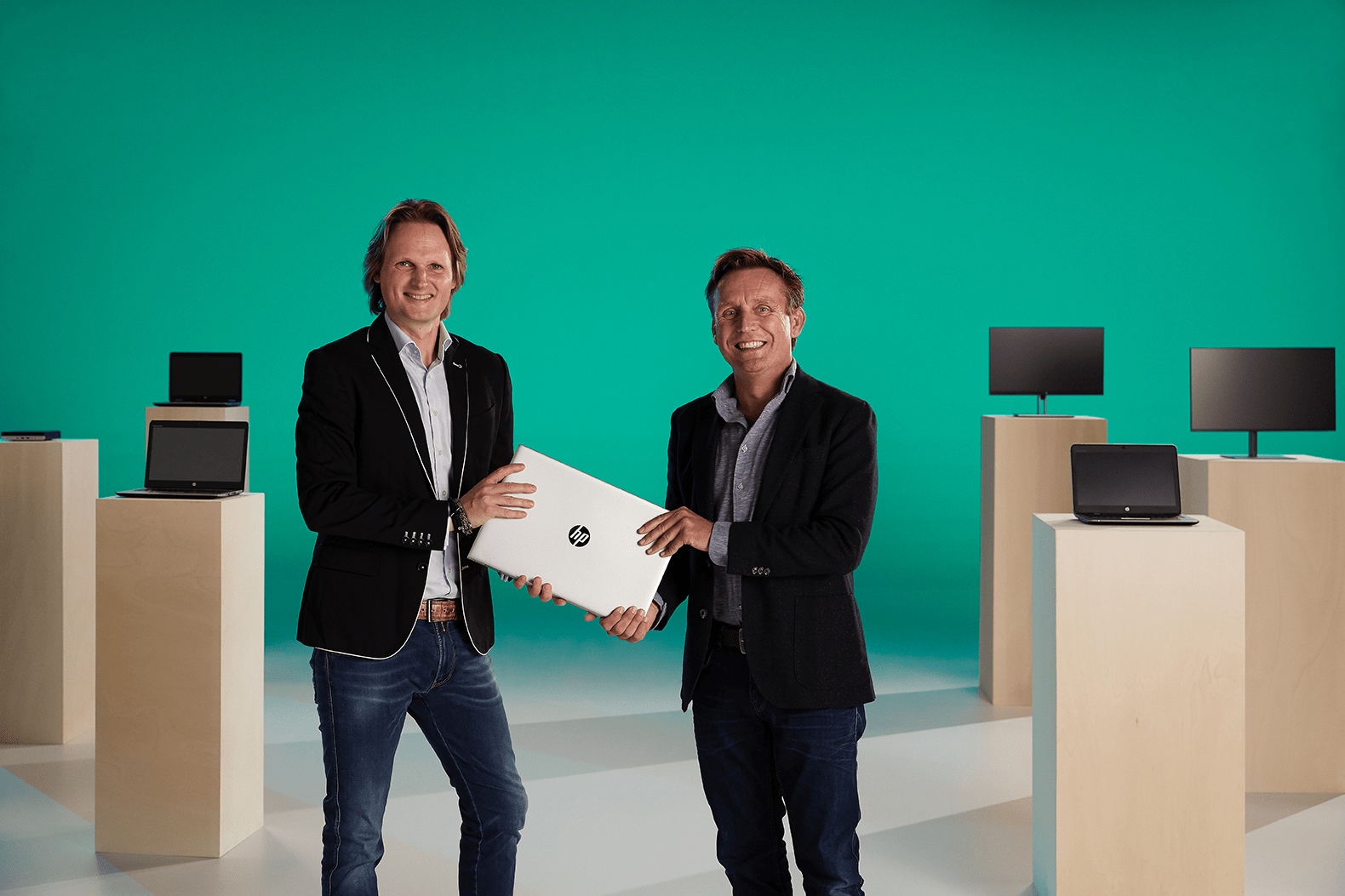StoryHub
Welcome to our StoryHub
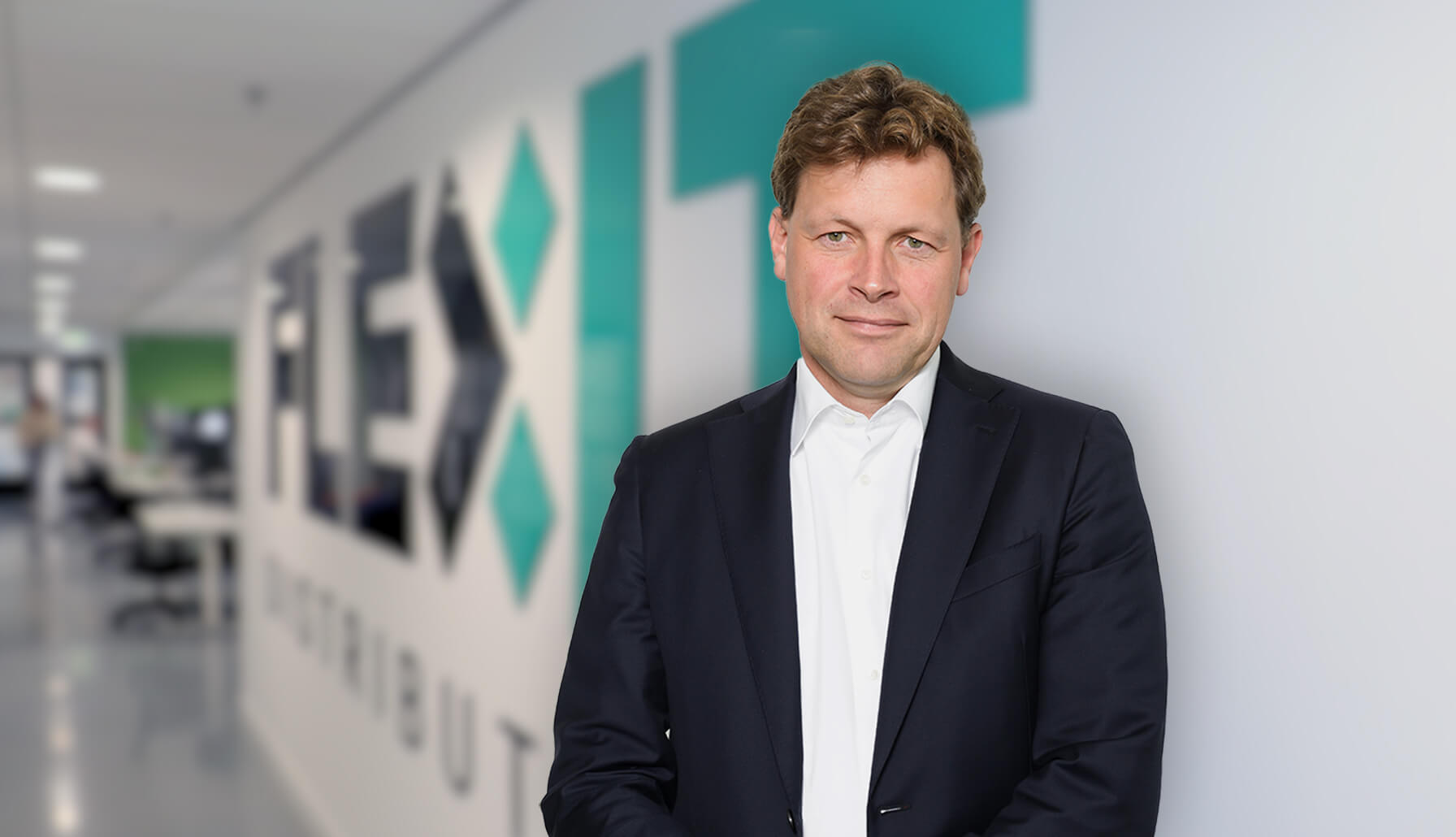
Circular IT is gaining traction – But we need to pick up the pace
It’s clear: the IT industry is moving towards a circular economy. Refurbished devices and smarter IT asset management are no longer niche ideas. Companies, governments, public sectors and consumers are starting to rethink the old “Buy, Use, Discard” model in favor of something smarter – reuse, longevity, and responsibility. But in reality, this shift is still too slow.
In my view, choosing refurbished IT devices is no longer just a possibility – it’s common sense and increasingly common practice for companies and individuals who value sustainability and smart investment.
Most businesses are still locked into fixed refresh cycles, replacing hardware every few years – even when those devices have years of life left. In my experience, that’s a missed opportunity.
Circular IT: No longer optional, not yet the standard
At Flex IT, we’ve been driving this transition for years. We see how our Buy Back program combined with IT Asset Disposition (ITAD) can turn used hardware into renewed value -financially, operationally, and environmentally. But to unlock the full potential of circular IT, companies must integrate refurbished hardware into everyday business.
To make this an industry wide practice we need to move from pilot projects and best intentions to real, large-scale adoption. Circular IT should be the default, not the exception.
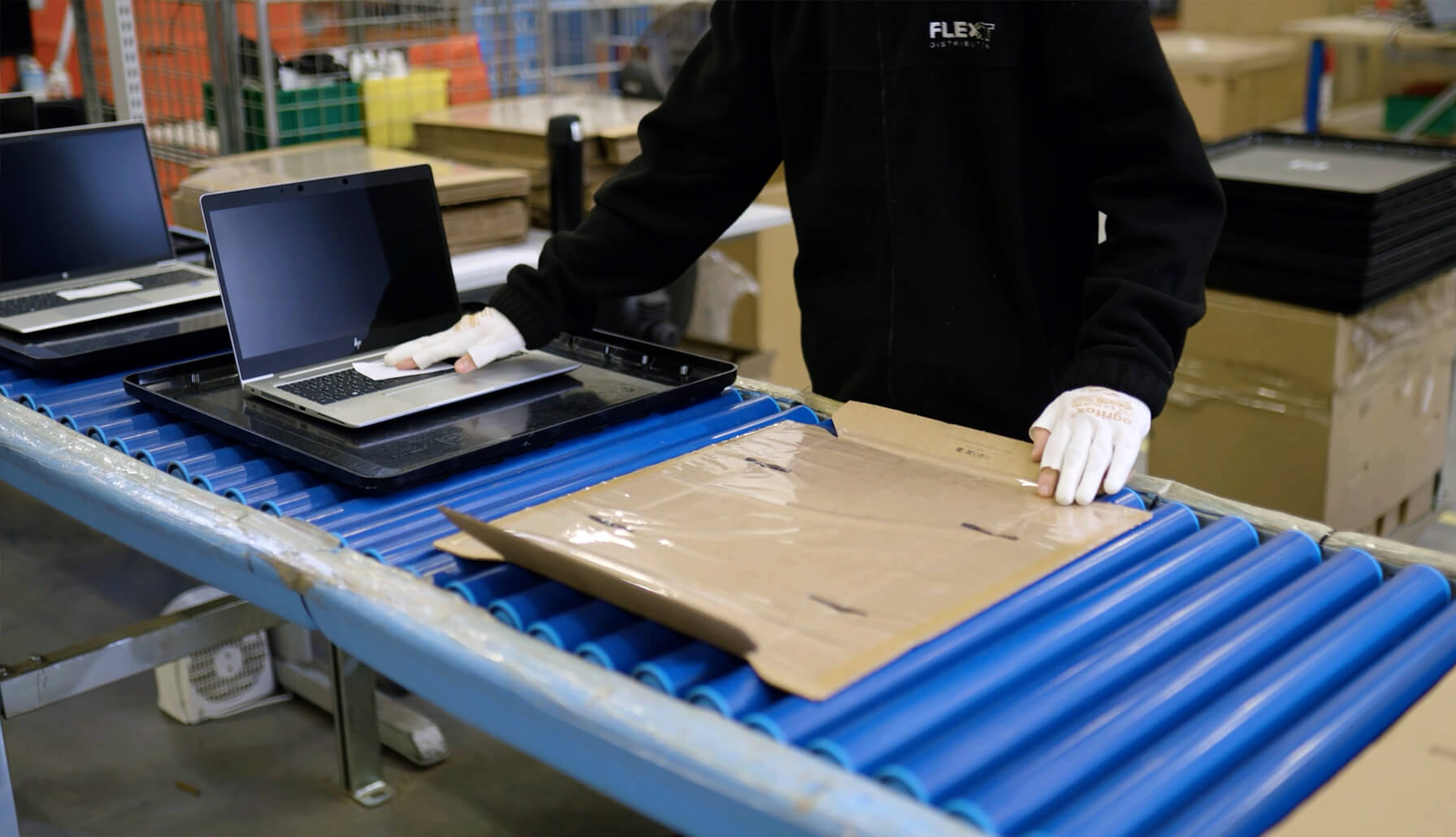
Raising the bar – together
The good news? The foundation is there. Regulations like Europe’s CSRD, growing ESG demands, and certifications like R2v3 are pushing companies in the right direction. At Flex IT, we set the bar high – giving our partners full insight into every step of the IT lifecycle, from secure data wiping to responsible refurbishment and certified recycling.
Taking responsibility as a leading Circular IT expert isn’t just about compliance, it’s about setting direction. It means that we are showing that sustainable choices and smart business go hand in hand and making it easy for others to follow.
By making circular IT practical, financially attractive, and professionally reliable, we can speed up the transition that’s already begun. We need to set a new standard so that the industry’s progress finally matches its potential.
Angelo Bul is CEO of Flex IT, Europe’s leading circular IT specialist. With decades of experience in the IT and telecom industry—including roles as Executive Vice President at Dustin and senior management positions at ZTE—Bul is passionate about building a more sustainable, circular digital future.
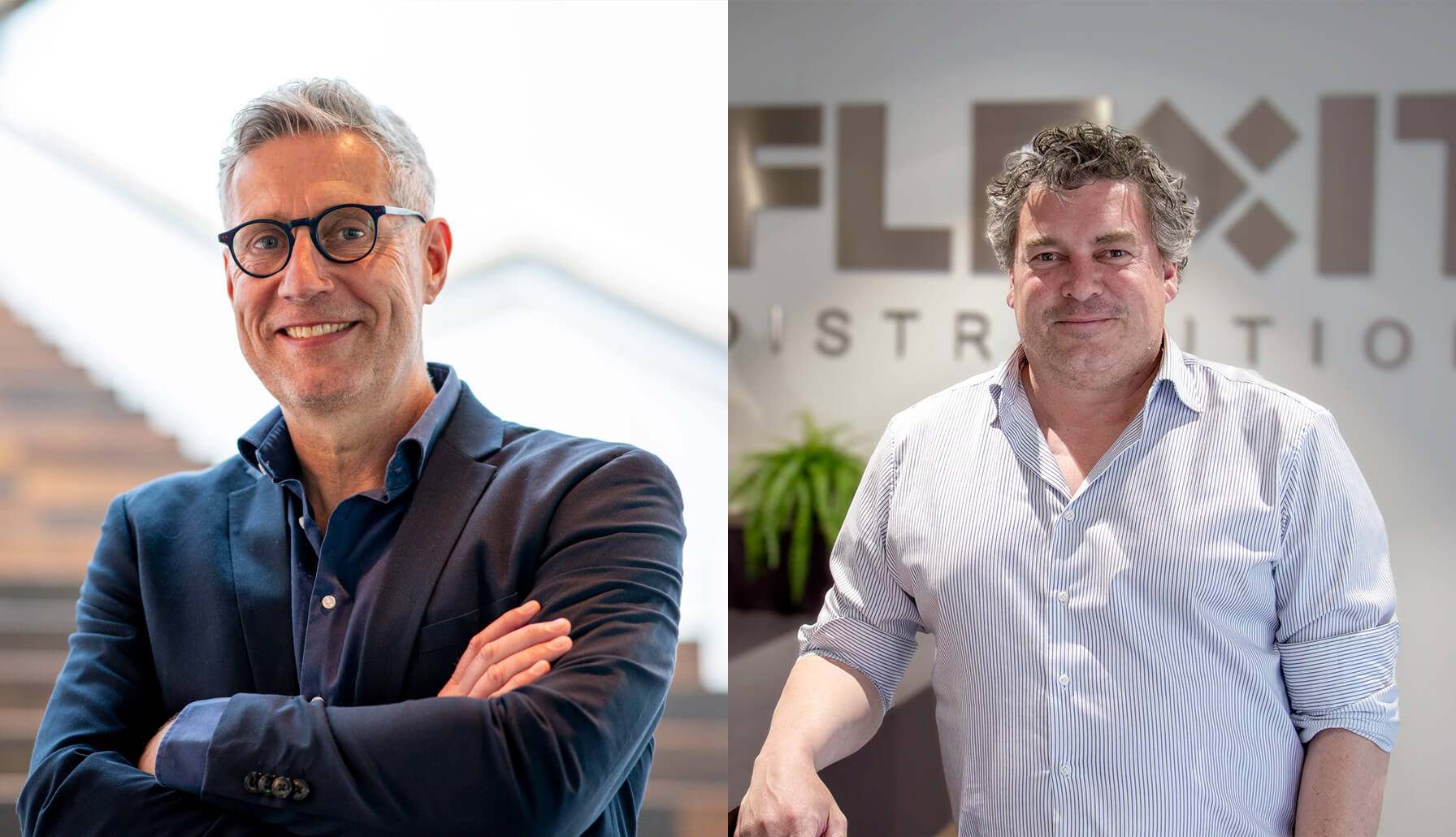
Concrete circularity with residual value, warranty and a bow on it
What started as a local collaboration on refurbished hardware has grown into an extensive partnership with impact on a European level. Michel Voorhout, Business Development Manager Digital Services at HP, and Aat van de Polder, Director of Business Development & Vendor Management at Flex IT, sit down together for a conversation about circularity, professionalisation and what keeps organisations from acting in a truly sustainable way.
‘’We talk about it a lot, but we don’t do it”. According to Michel, few customers really look holistically at the full lifecycle of their devices. ‘’They focus on the purchase, but forget what happens afterwards.’ Aat adds: “There is enthusiasm, the story is good. But the lack of time, space or motivation is an obstacle.” That is the market situation HP and Flex IT are manoeuvring into, where both parties have taken the lead to bring in more circularity.
Warranty, residual value and scalability
The previous “HP Approved Selection” programme has now joined HP Certified Refurbished. With this, HP and Flex IT take it one step further: ‘’The quality remains the same, but the difference is that it now comes with a standard one-year HP warranty,’’ says Aat. ‘’That makes it much more trustworthy among end users and governments.’’
Another difference is scale. The programme is now being rolled out Europe-wide, with a clear message: under HP and Flex IT, refurbished has become prominent. Michel: “We are taking major steps in professionalising our approach — not just in excellence, but also in process and volume. HP brings the original quality, Flex IT adds the refurbishment expertise, and Microsoft provides the CMAR licence that brings it all together. It’s this combination that makes the partnership so powerful.”
An added boost is that Flex IT recently won the HP Amplify Sustainability Excellence Award. That award did not come out of the blue. ‘’Flex IT was at the forefront of the HP Amplify Impact program,’’ says Michel. ‘’They achieved five stars. That’s only possible if you really have embedded all facets of sustainability in your organisation’’. Aat: “We had to demonstrate everything from CO2 reports to car leasing rules and diversity policy. Everything was reviewed. We show exactly how much CO2 a refurbished laptop saves compared to a new one. So it goes far beyond IT alone: it’s your entire business operations.”
From sustainability to distinctiveness
Circularity needs to be made tangible and financially attractive, both men believe. ‘’We don’t just talk about sustainability – we link concrete values to it,’’ says Michel. “We give a soft commitment on residual value in three to four years. This allows a customer to apply a different depreciation and thus invest smarter.”
Aat: “And we are launching a buyback programme. When buying a new device, we immediately offer to take back the old one. With certified wiping, refurbishment and redeployment through HP Certified Refurbished. This is how we make circularity not only green, but also business-friendly.”
Talking, and now doing
Yet Michel and Aat see that many organisations are still lagging. ‘’Circularity is on the agenda, but not in implementation,’’ says Michel. “We see that partners are now starting to ask. That’s a big difference from a few years ago. But there is still a world to win.” Aat: “There will be a natural selection in the market. Not everyone achieves R2 certification or can show where every part of a device ends up. Customers increasingly want security as well as ESG data for their annual report. You have to be prepared for that.”
Seemingly simple actions can make a big difference. As an example, Aat mentions wrapping laptops. “By wrapping laptops in advance, either universally or with corporate branding, they retain a better cosmetic condition. And thus higher residual value. It prevents friction at the end of the chain. The price often drops only after inspection. But if you know that the exterior remains tidy, you can agree a price upfront. That makes it more reliable for everyone.” HP and Flex cooperate with 3M for this and guarantee that all materials are thermally and technically tested.
From rental to reuse, from residual flow to residual value
The origins of this strong cooperation in the refurbished field lie partly in Flex IT’s large rental pool. During the Covid period, this grew explosively. ‘’We wondered what we do with those devices after rental,’’ Michel says. ‘’That led us to the idea of multi-lifecycle and circularity as a strategic starting point.’’ Legislation also plays a role in this. In France, for instance, there is a mandatory circular purchasing percentage in IT. That put the topic on the agenda at an accelerated pace. “Five years ago, internally at HP, people were still saying: why should we think about second-hand equipment? Now it’s no longer about second-hand. It’s about employability, raw materials and CO2 reduction,” says Michel.
This collaboration between HP and Flex IT offers more than just technology. ‘’We deliver our refurbished products with original Windows licence, through Microsoft Authorised Refurbisher,’’ says Aat. “And we use original HP parts. That makes us unique and gives customers the confidence they need.” According to Michel, that is also where the future lies: “We want to continue to make a difference by combining quality and scalability. But we have to keep educating partners, keep explaining. Because it’s still the case that many people don’t know we also do refurbished.”
This interview was originally conducted by ITchannelPRO and published both in print and online, in Dutch.
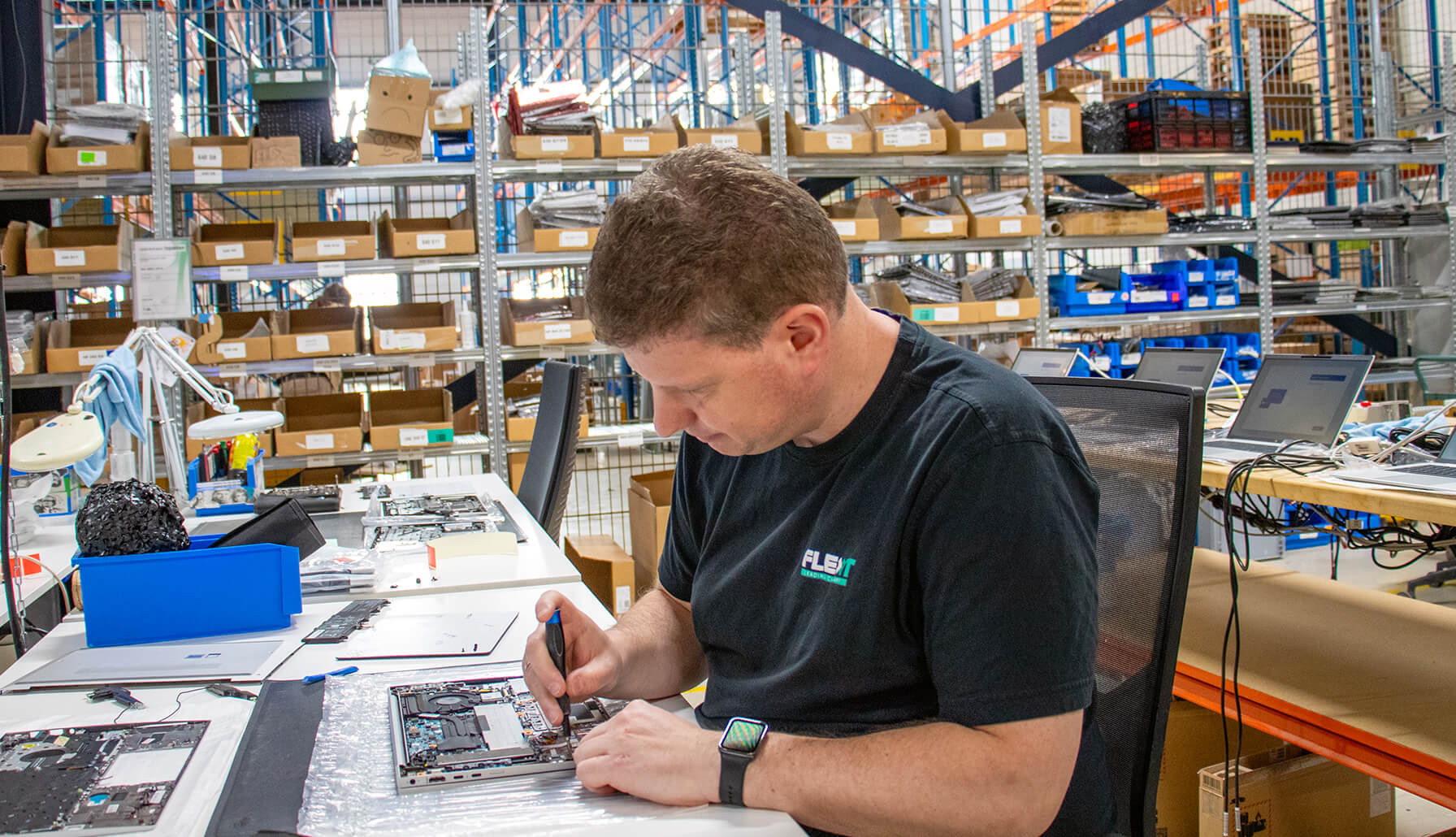
Working at Flex IT: Reinier’s journey from DZB to Flex IT
Flex IT values local partnerships that have a positive and lasting impact.
One example is our collaboration with DZB Leiden, the reintegration company of the municipality of Leiden, which helps people with a distance to the labour market find meaningful employment.
Through this partnership, we welcomed Reinier to our team twelve years ago. Since then, he has become a valued and dedicated colleague at Flex IT. We recently spoke with Reinier to reflect on his journey and experiences.
Thank you for taking the time, Reinier. Can you please introduce yourself?
My name is Reinier, I’m 41 years old, and I live in Leiderdorp, though I was born and raised in Leiden. I went to school at De Manse in Leiden, and after graduating, I started working right away. My first job was at a printing house, where I stayed for about a year, before joining DZB in 2003 — an organization focused on guiding people and helping them reach their full potential.
Growing up, I loved taking things apart — old computers, radios, and VCRs — just to see how they worked. That curiosity stayed with me and turned out to be a real asset when I later joined Flex IT.
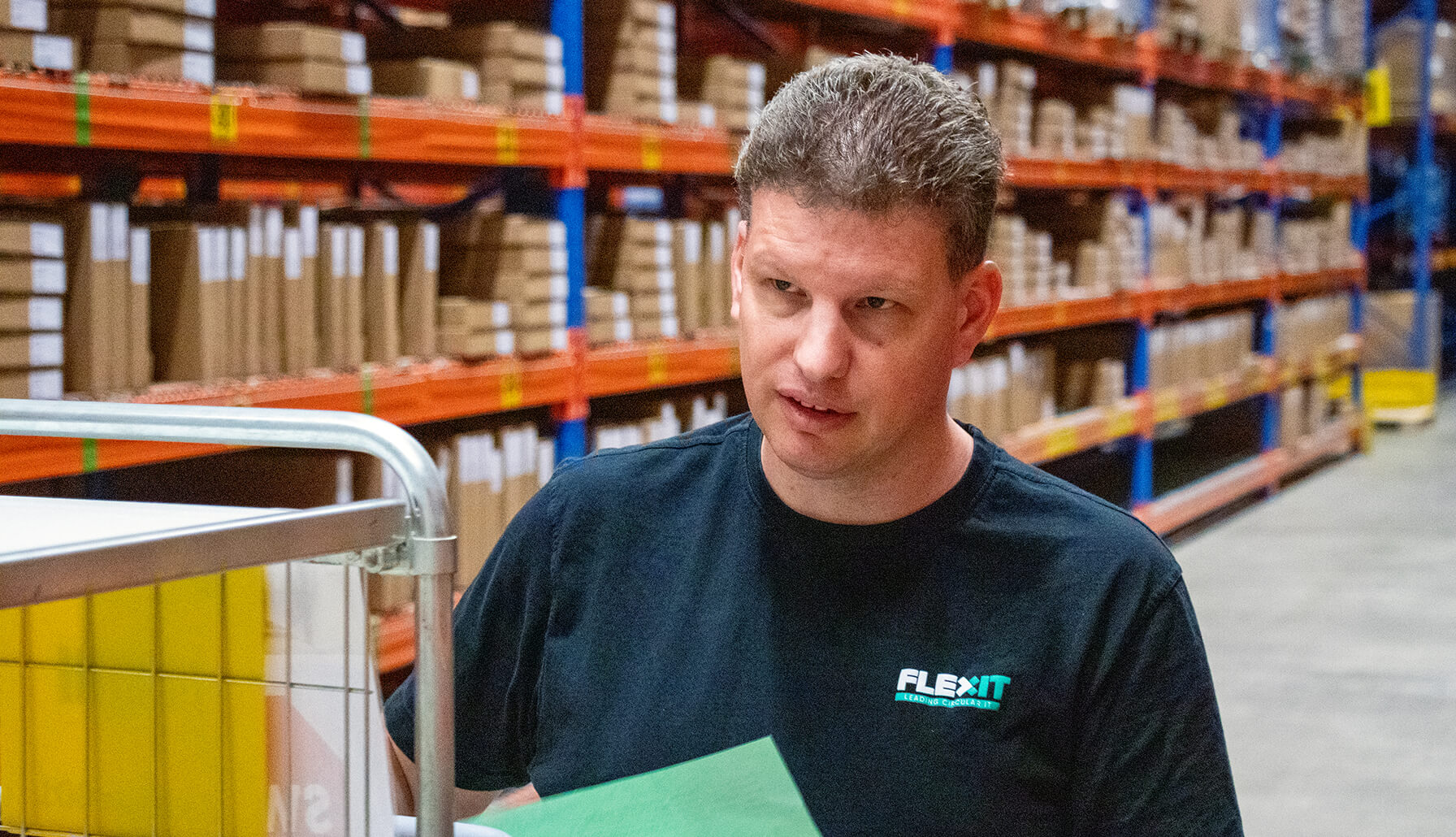 Reinier at work in the Flex IT warehouse in Leiden
Reinier at work in the Flex IT warehouse in Leiden
So how did you go from DZB to Flex IT, and what is it you do here?
I’d been working at DZB for about 10 years when one of the managers approached me — he’d heard that Flex IT urgently needed help in the warehouse. “You’re good with computers, right?” he said. That’s how it all started. I decided to give it a try for a month, really enjoyed it, and now I’ve been with Flex IT for 12 years.
I began by packaging screens and monitors and wiping computer systems. After a while, that didn’t feel challenging enough, so I got my own workstation and started taking apart computers for repairs and parts. These days, I handle all kinds of small fixes myself — like replacing a battery or installing a new hard drive. And if a device can’t be refurbished, I dismantle it completely so we can reuse the parts later on.
What do you enjoy about working at Flex IT?
What I enjoy most is the hands-on work and being part of a supportive team. I like working with my hands, solving practical problems, and being around colleagues from all kinds of cultural backgrounds. There’s a strong sense of mutual respect here, and that creates a really positive atmosphere.
I also really enjoy helping new team members settle in. Training them, showing them how things work, and watching them grow into their roles—it’s a great way to connect with people and share what I’ve learned over the years.
What makes Flex IT special for me is how understanding the company is. I sometimes experience sensory overload, and when that happens, I’m allowed to use special earplugs that help me stay focused. That kind of support makes a big difference—it shows they truly care about their people.
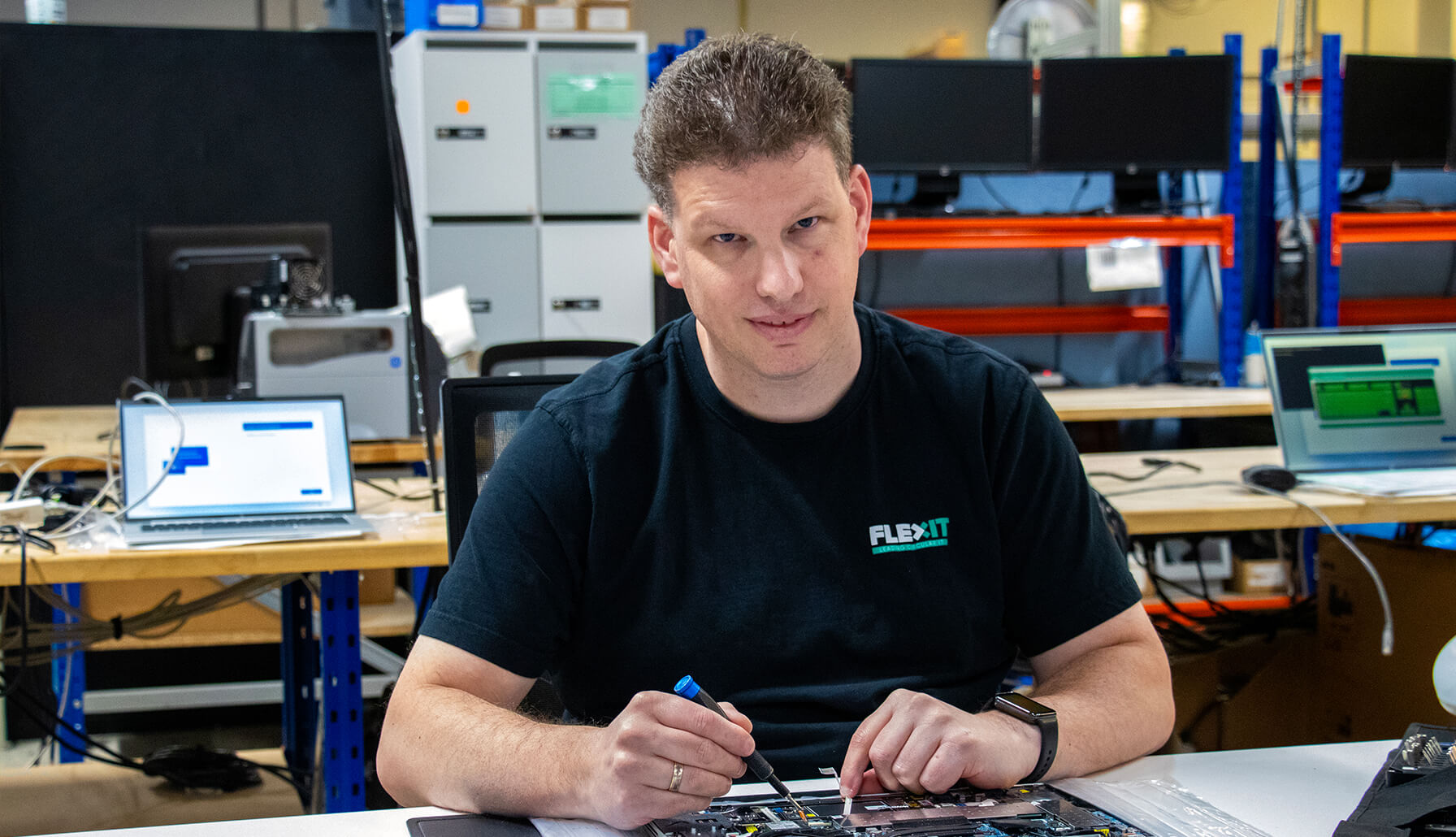
Focused and hands-on — Reinier at his workstation at Flex IT, configuring a refurbished notebook.
And how do you see your future? Any goals you have in mind?
Looking ahead, I’d like to work more in the Servers department and perhaps focus more on Apple MacBooks. That would be a great next step for me. Either way, I really value what I have right now — things are going well, and I’m happy with where I am.
Good to hear! One final question, what is most memorable moment you’ve had at Flex IT?
There are so many great memories, it’s hard to choose just one! I always really enjoy the company events—whether it’s a barbecue, a team lunch, or one of the end-of-year celebrations. They’re a great way to relax, have fun, and connect with colleagues outside of work.
But if I had to pick a story that really stuck with me… well, my colleagues know I can’t stand Brussels sprouts.
I don’t like the taste, the smell—nothing about them. A few times, when we had to stay late to finish orders,
we’d order food together afterwards. One time, after a long day, I was really looking forward to a good “kapsalon”.
But when I opened it up… it was completely filled with Brussels sprouts. My colleagues had swapped my order as a joke!
We had a good laugh, and honestly, that kind of playful energy says a lot about the team spirit here.
We work hard, but we also enjoy the little moments together.

Reinier with his Brussels sprouts “kapsalon”.
Thank you, Reinier, for your dedication, your curiosity, and your team spirit — we look forward to seeing what your next chapter at Flex IT will bring!

